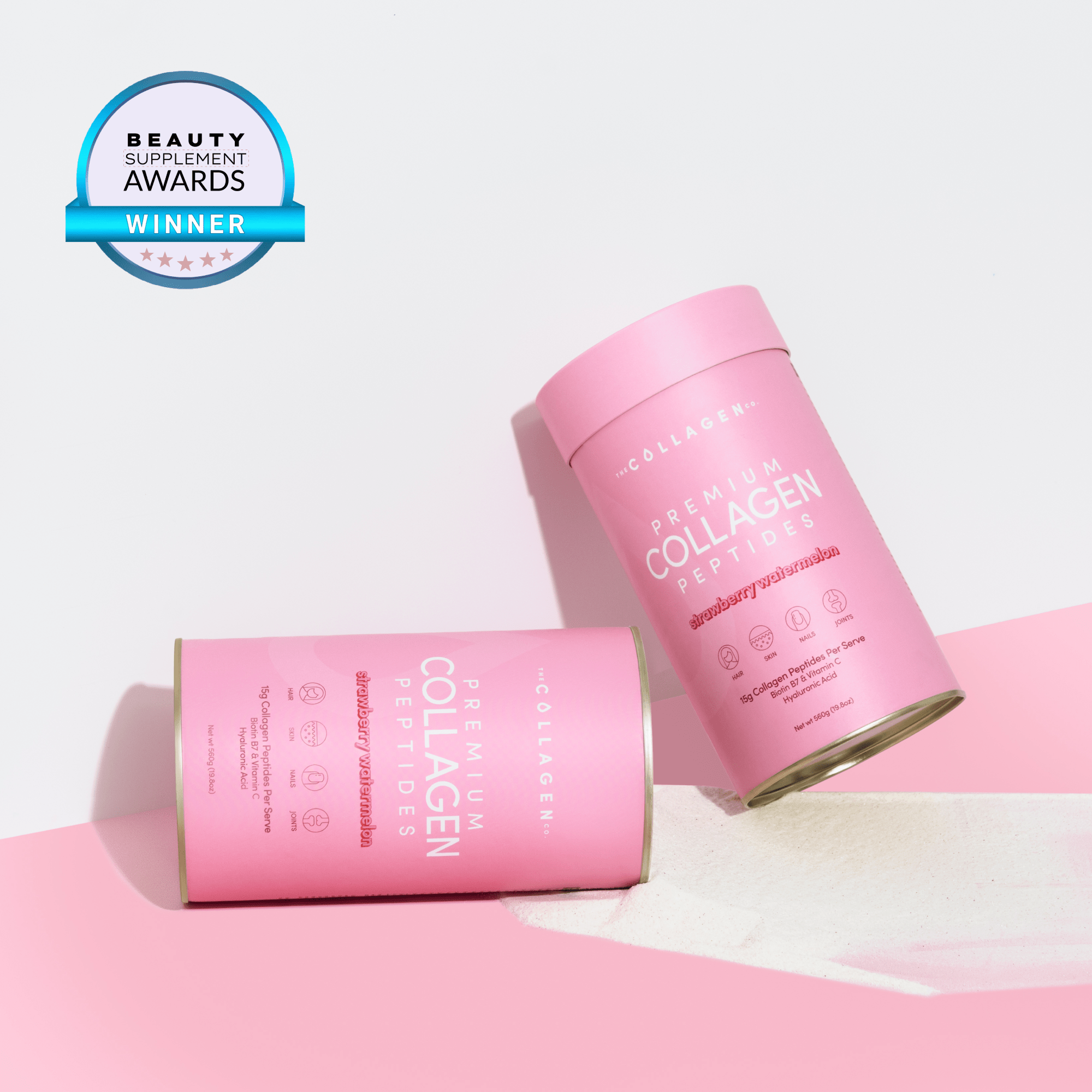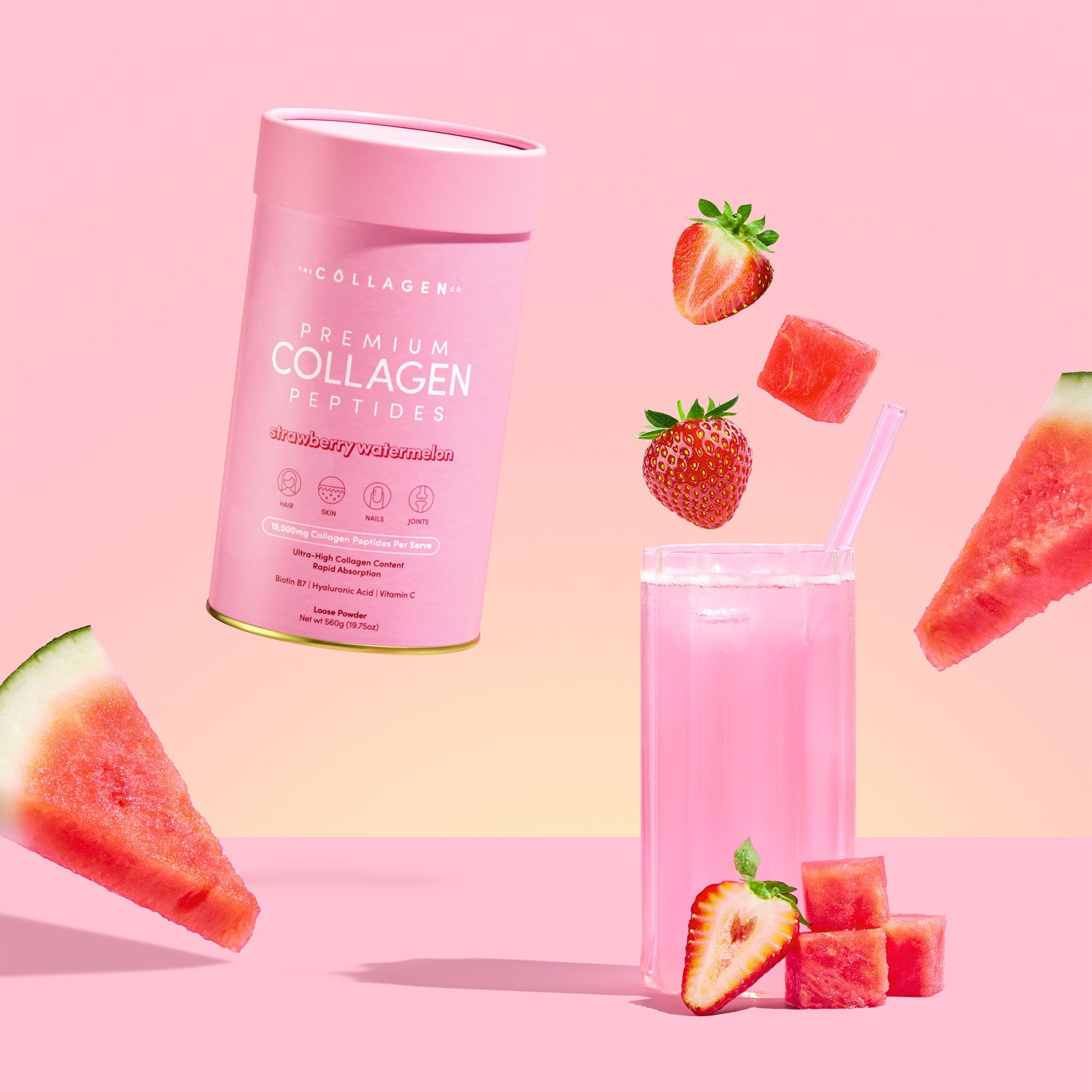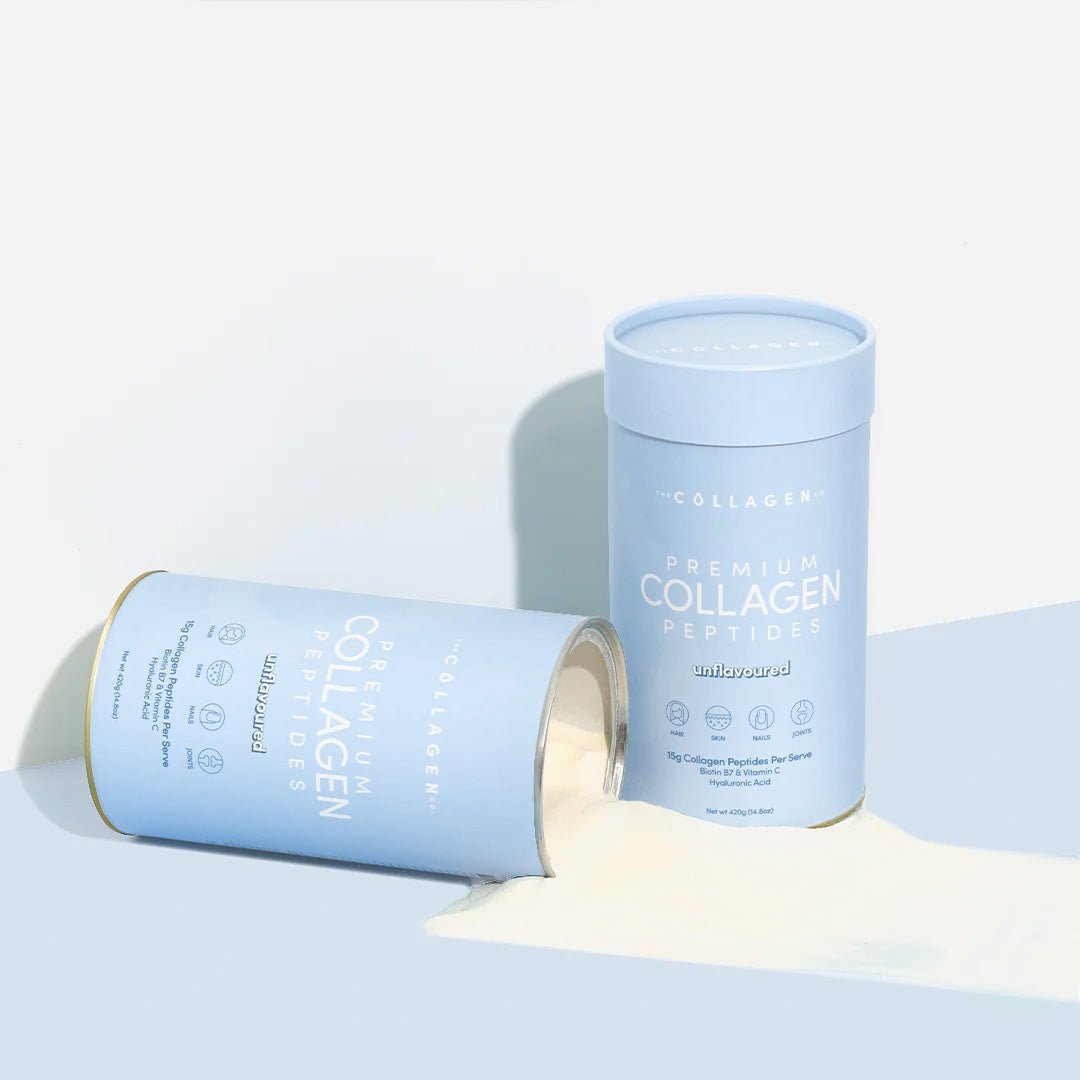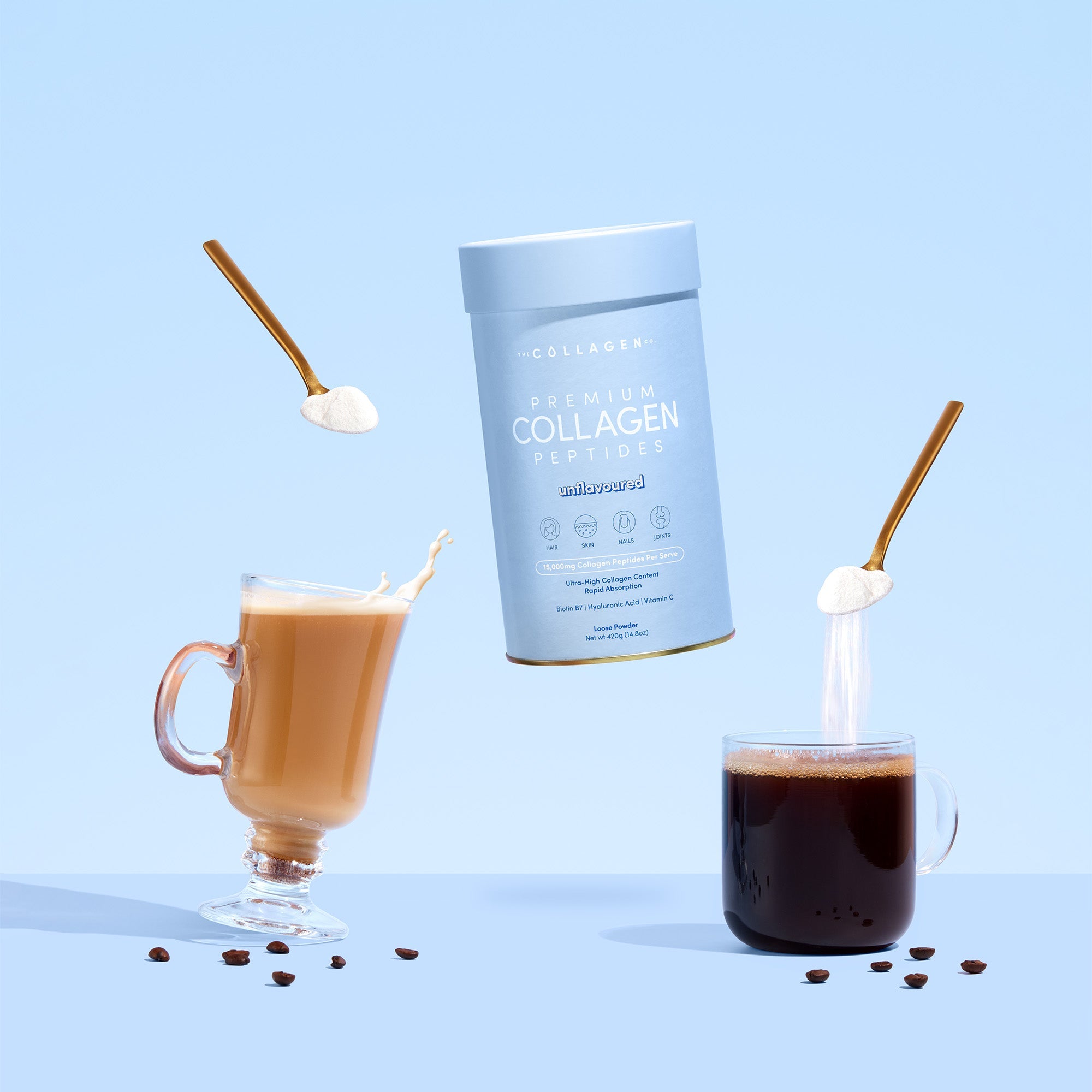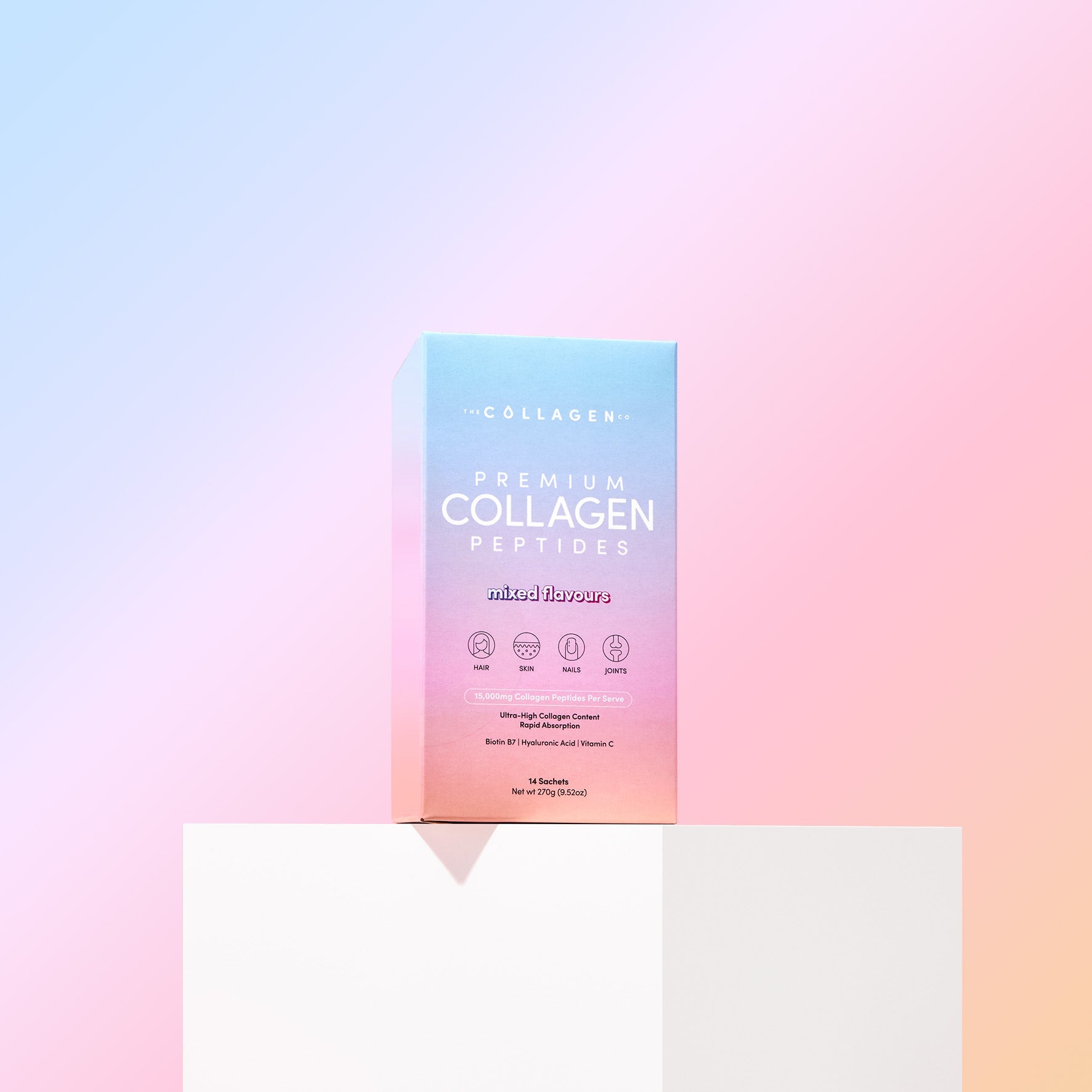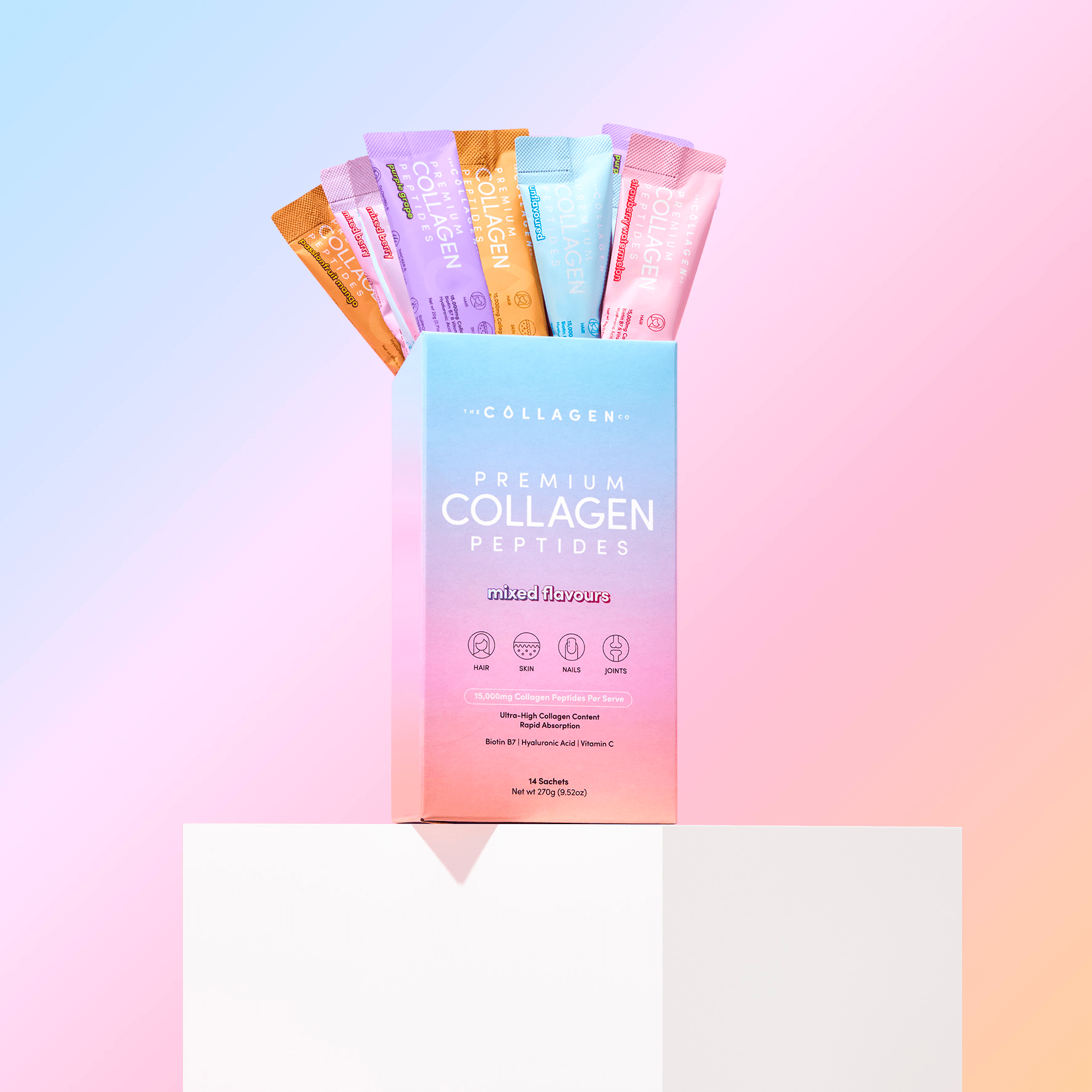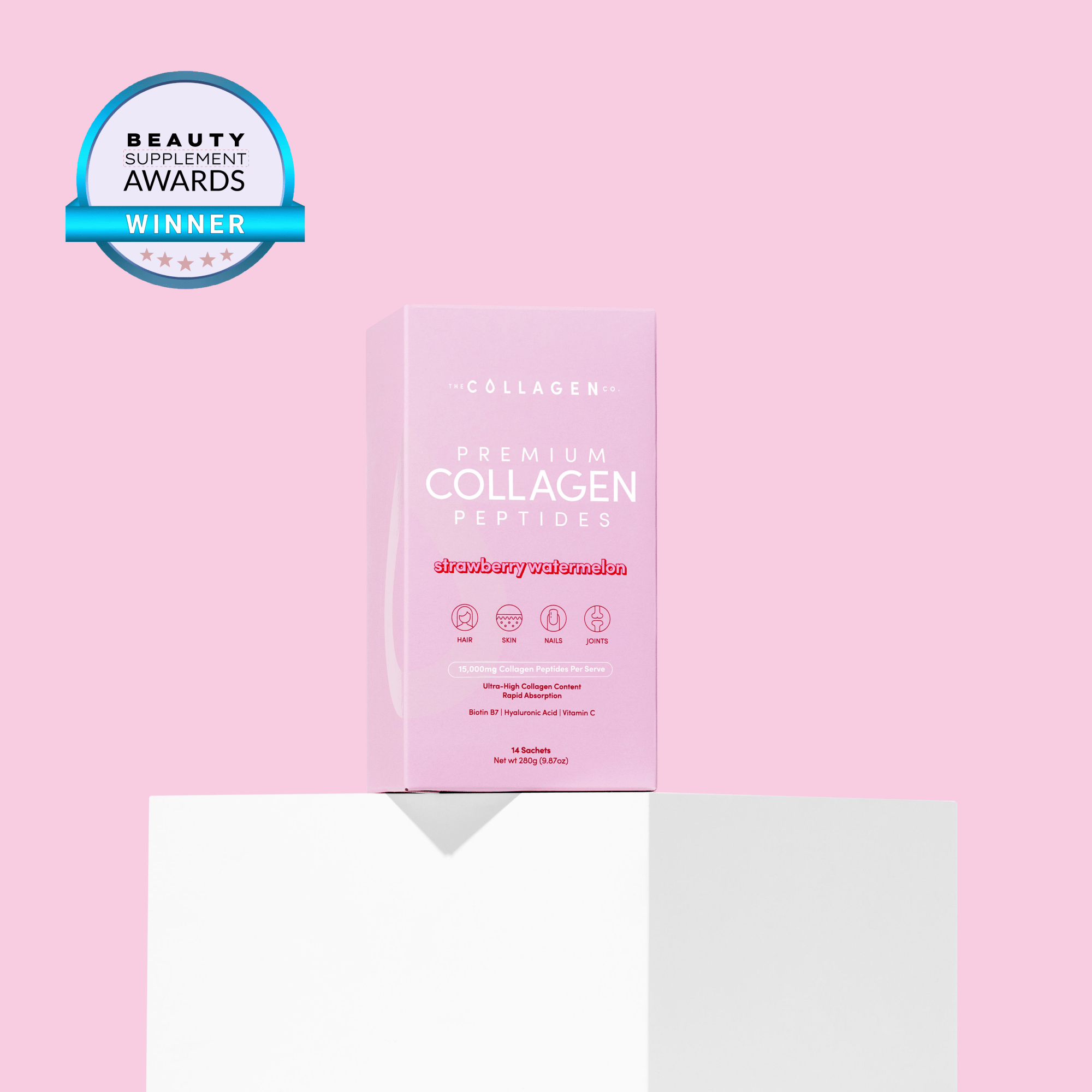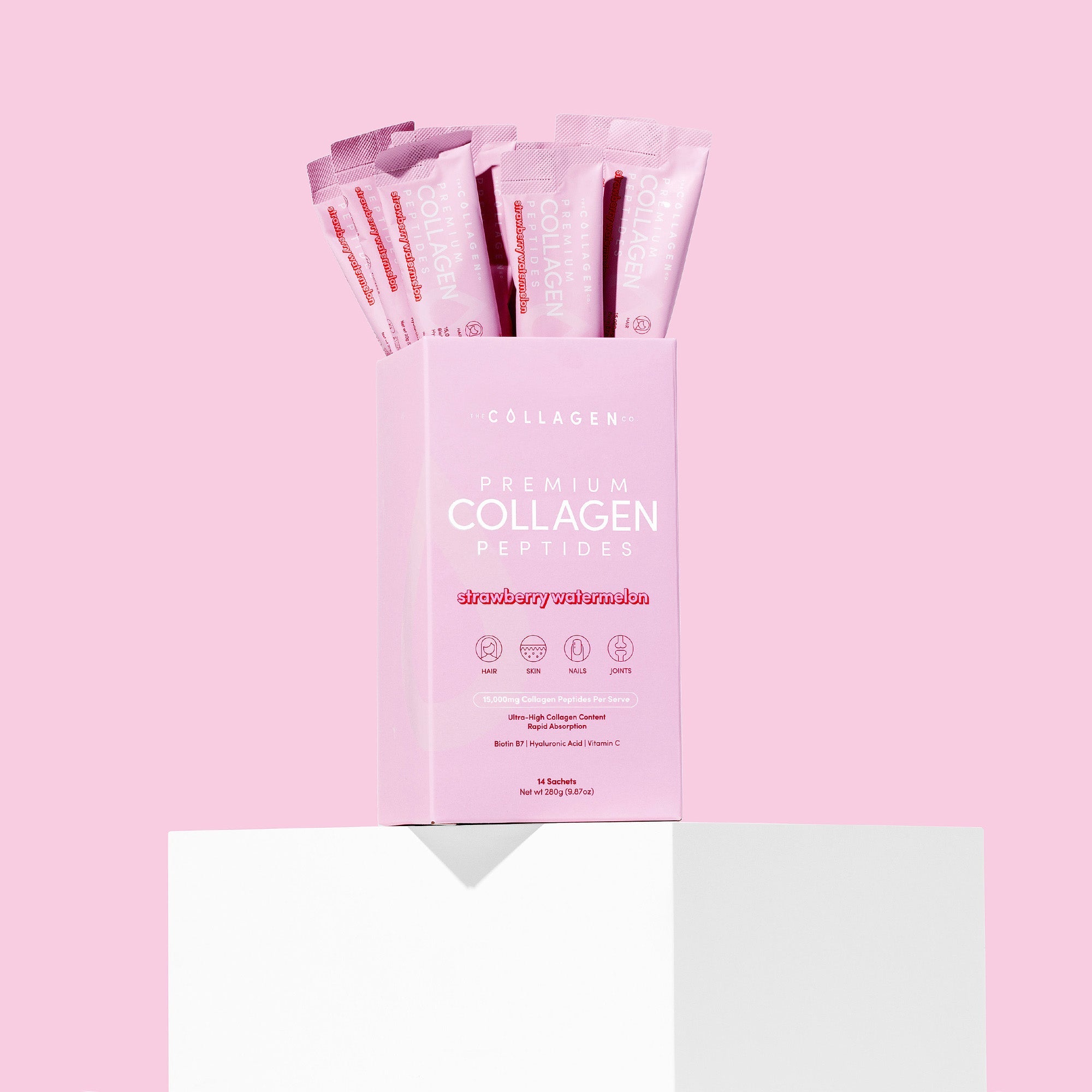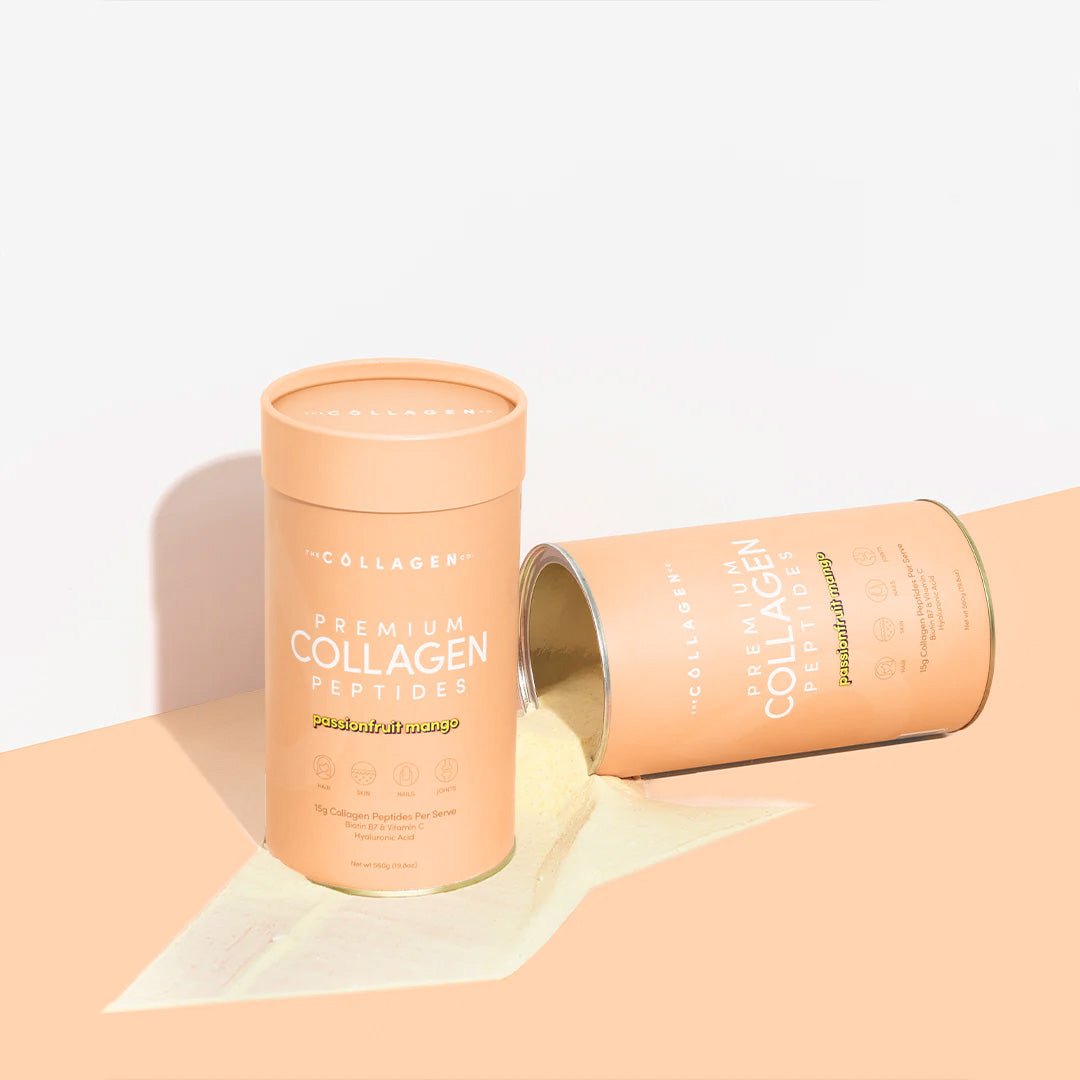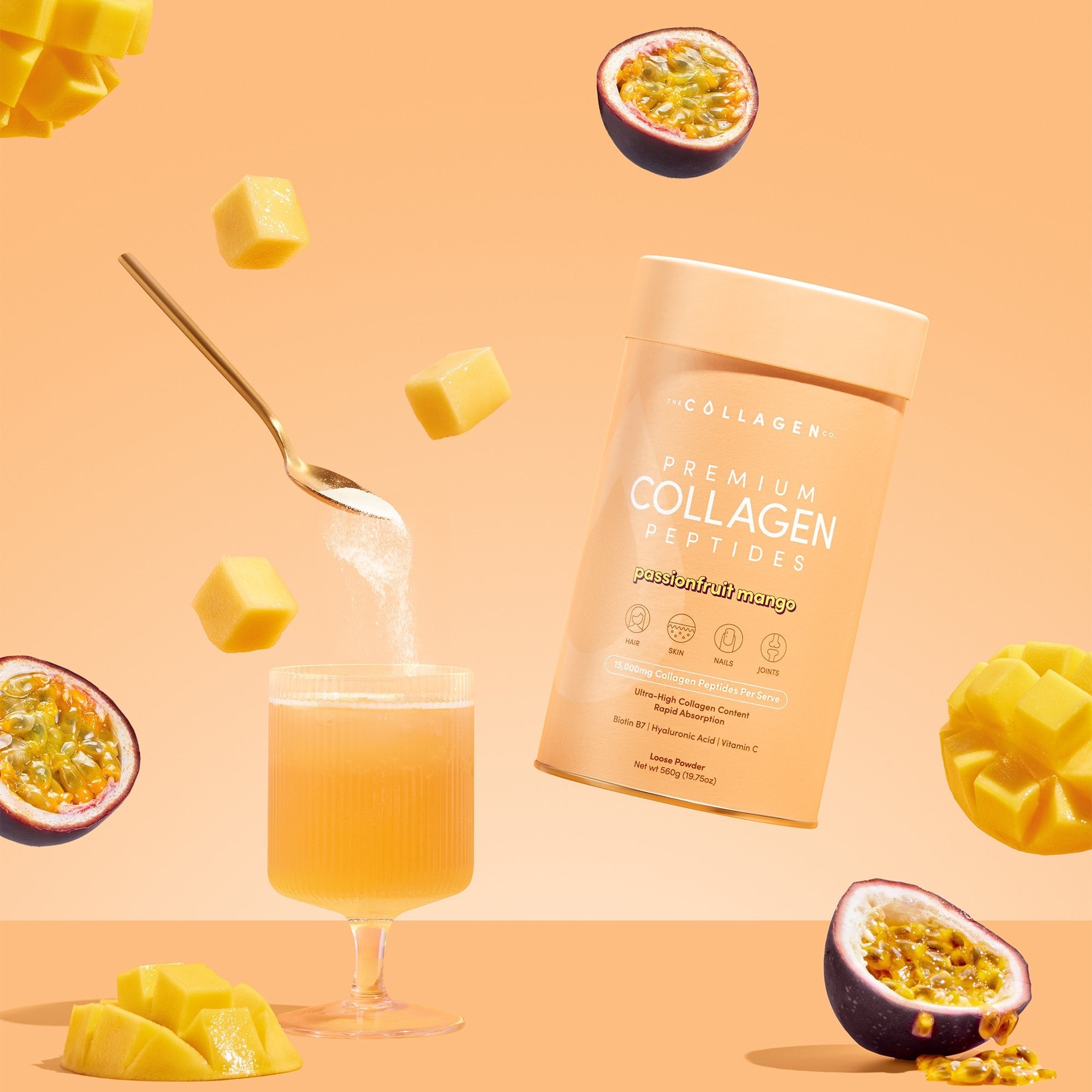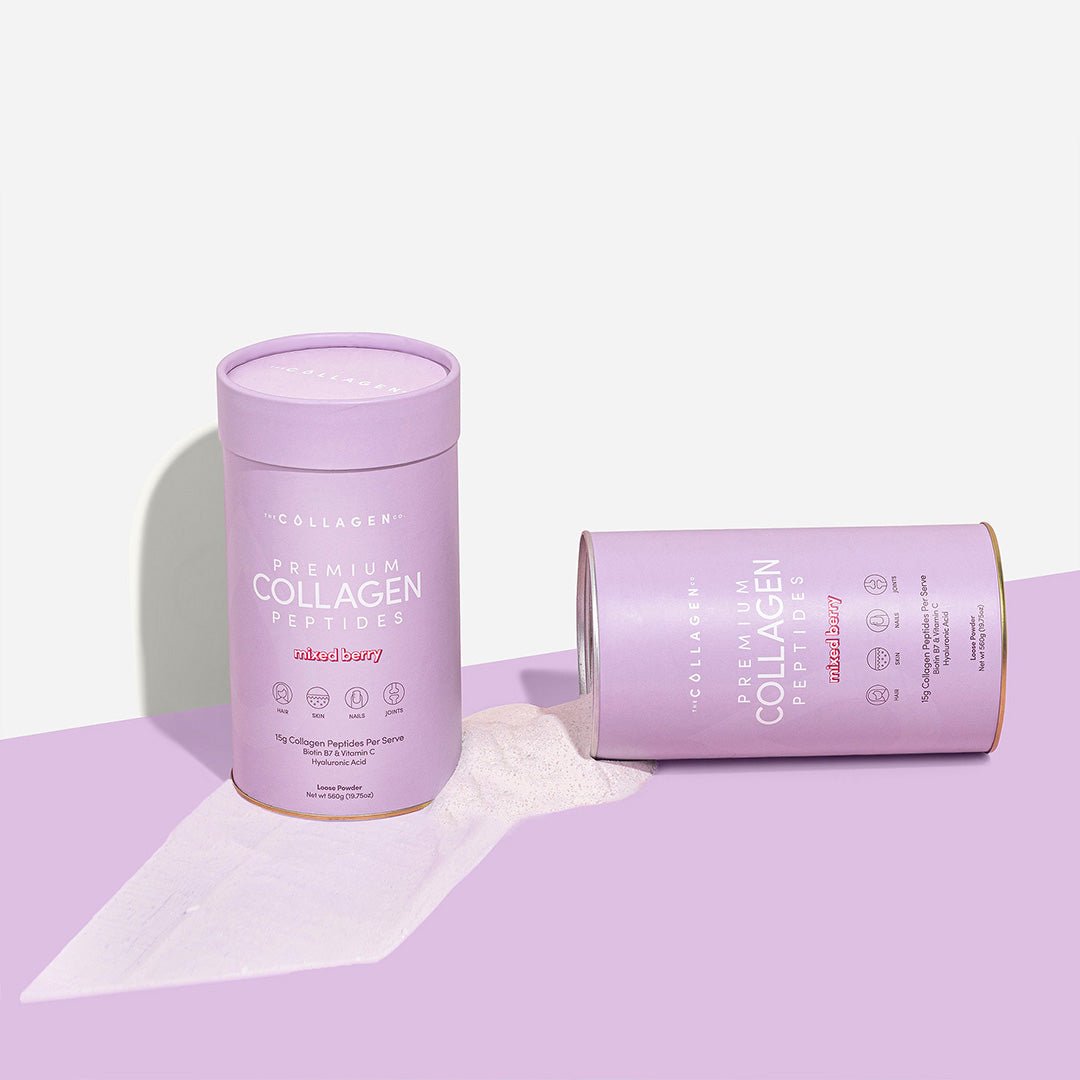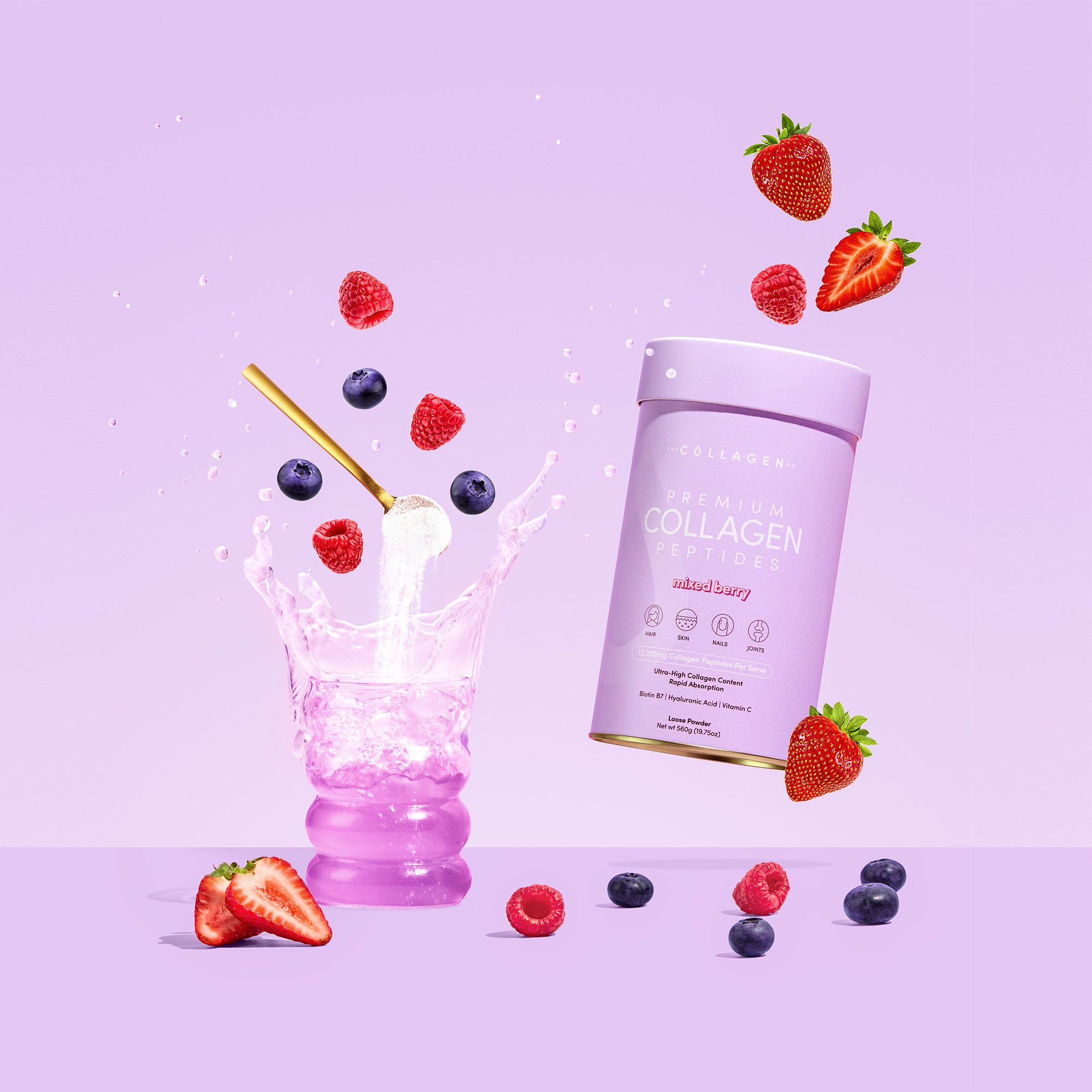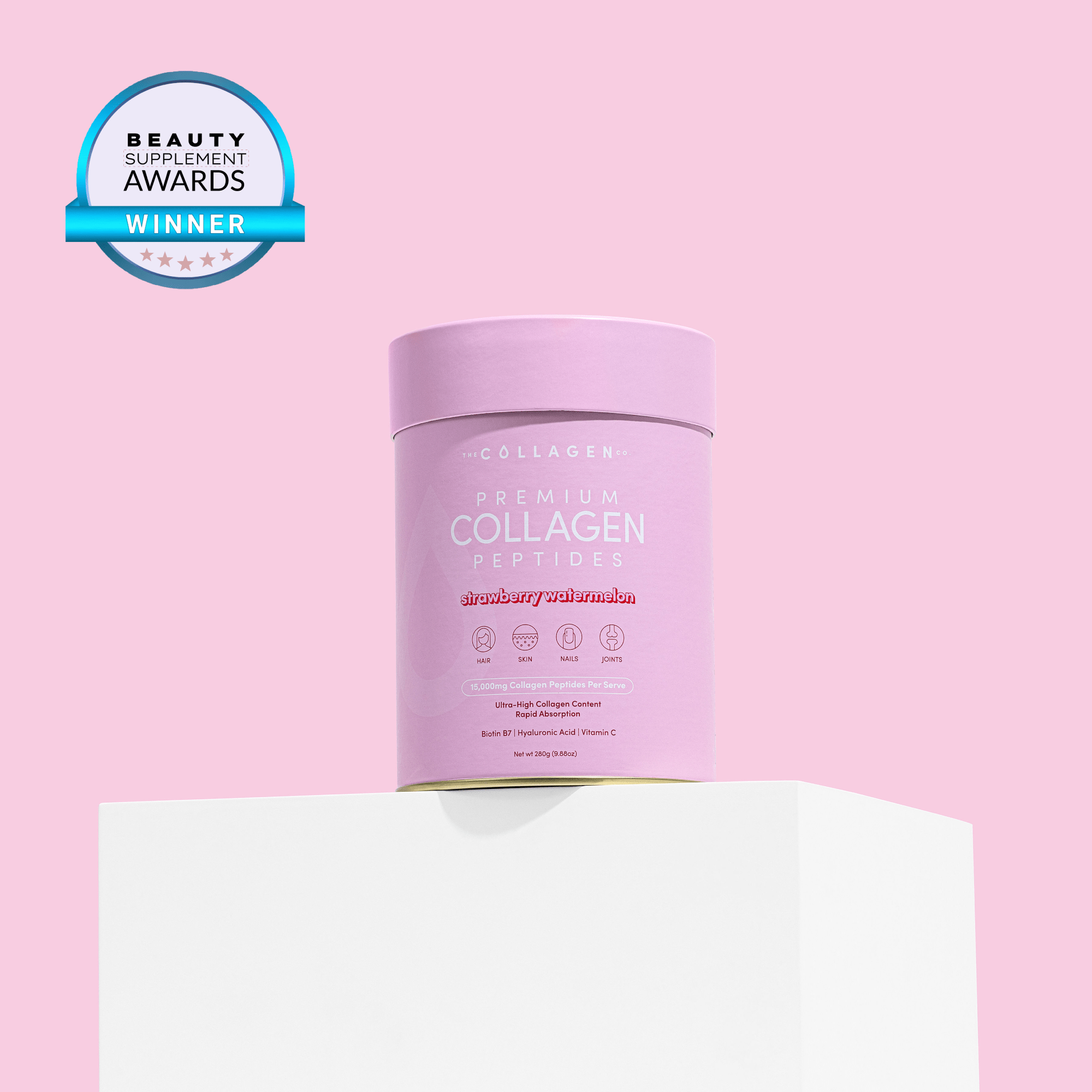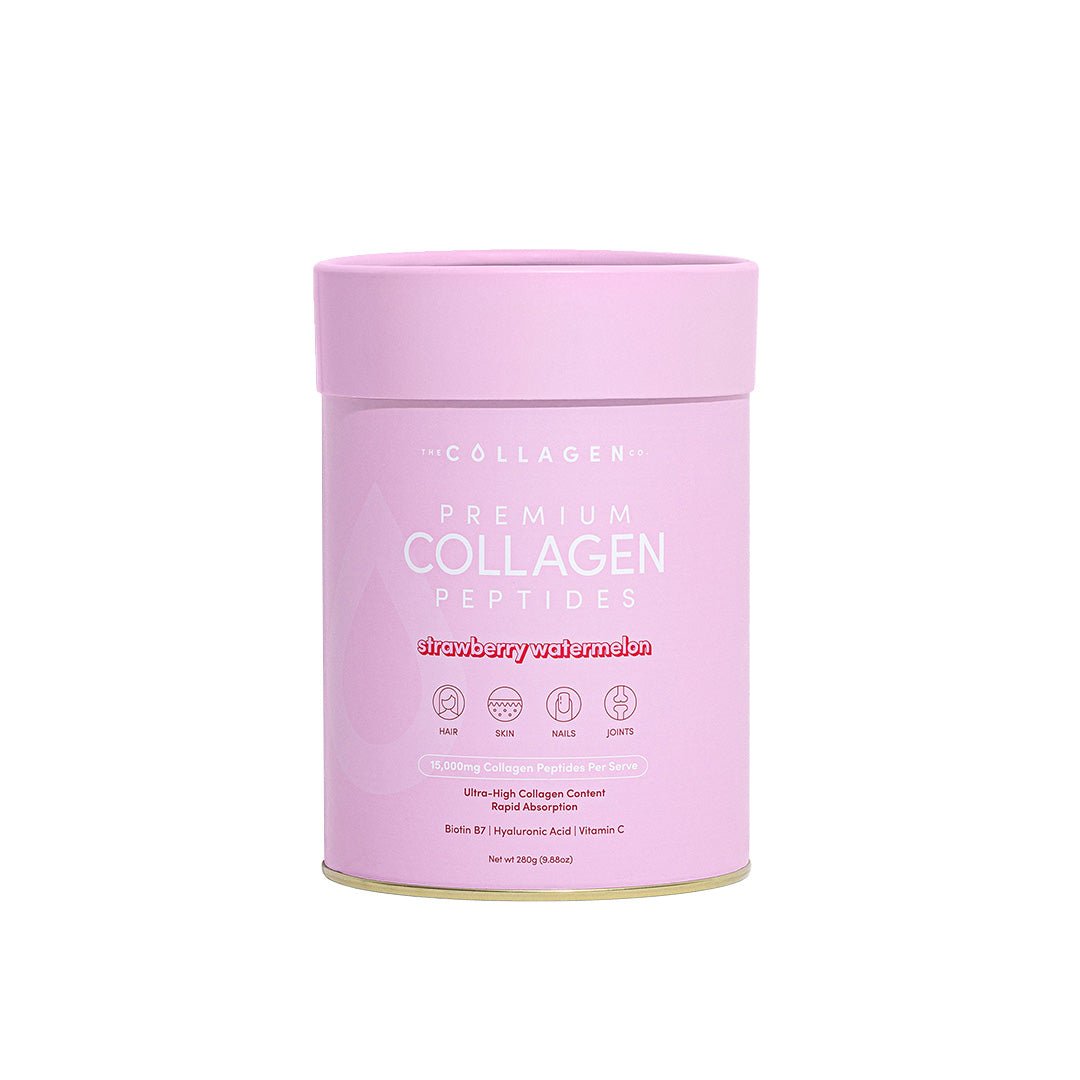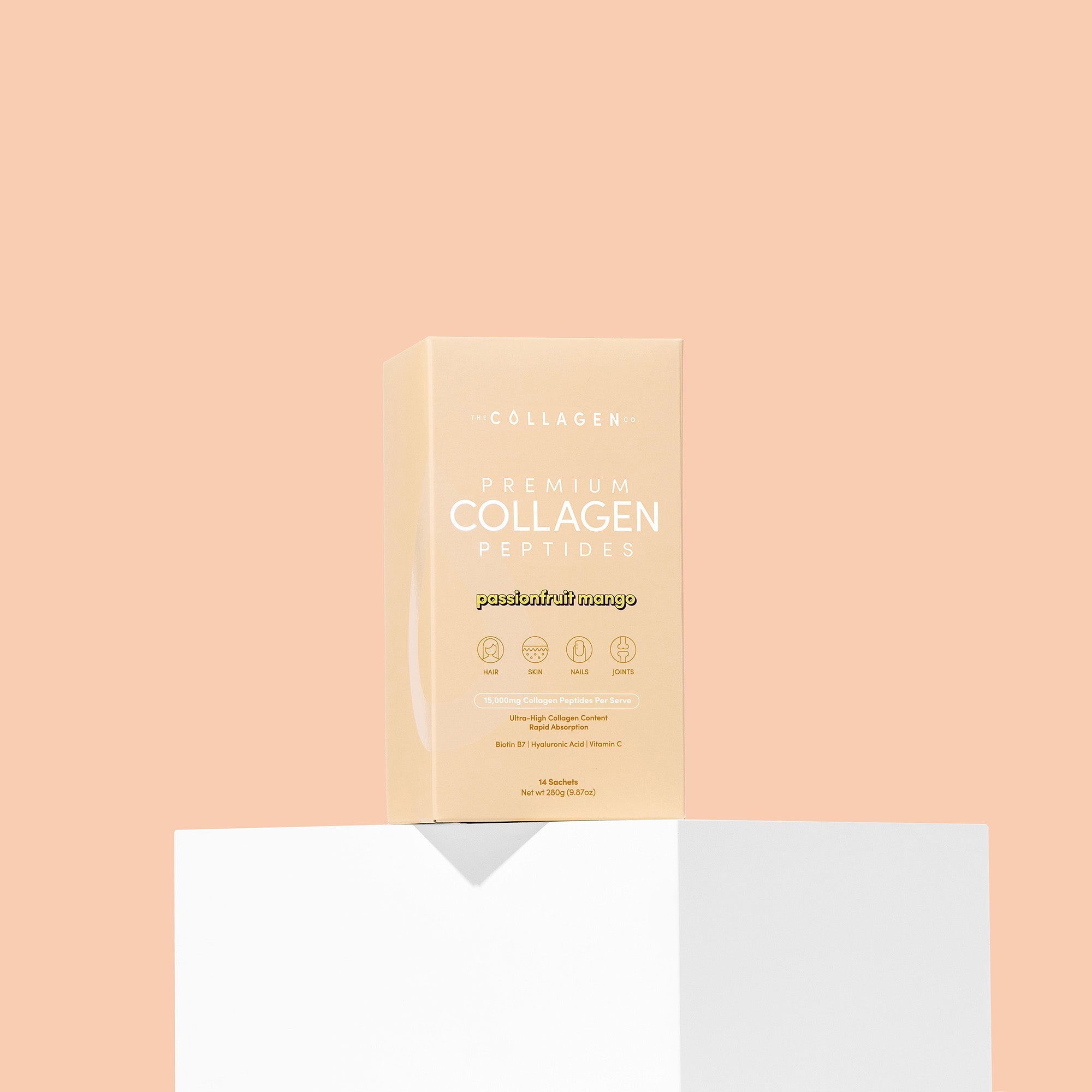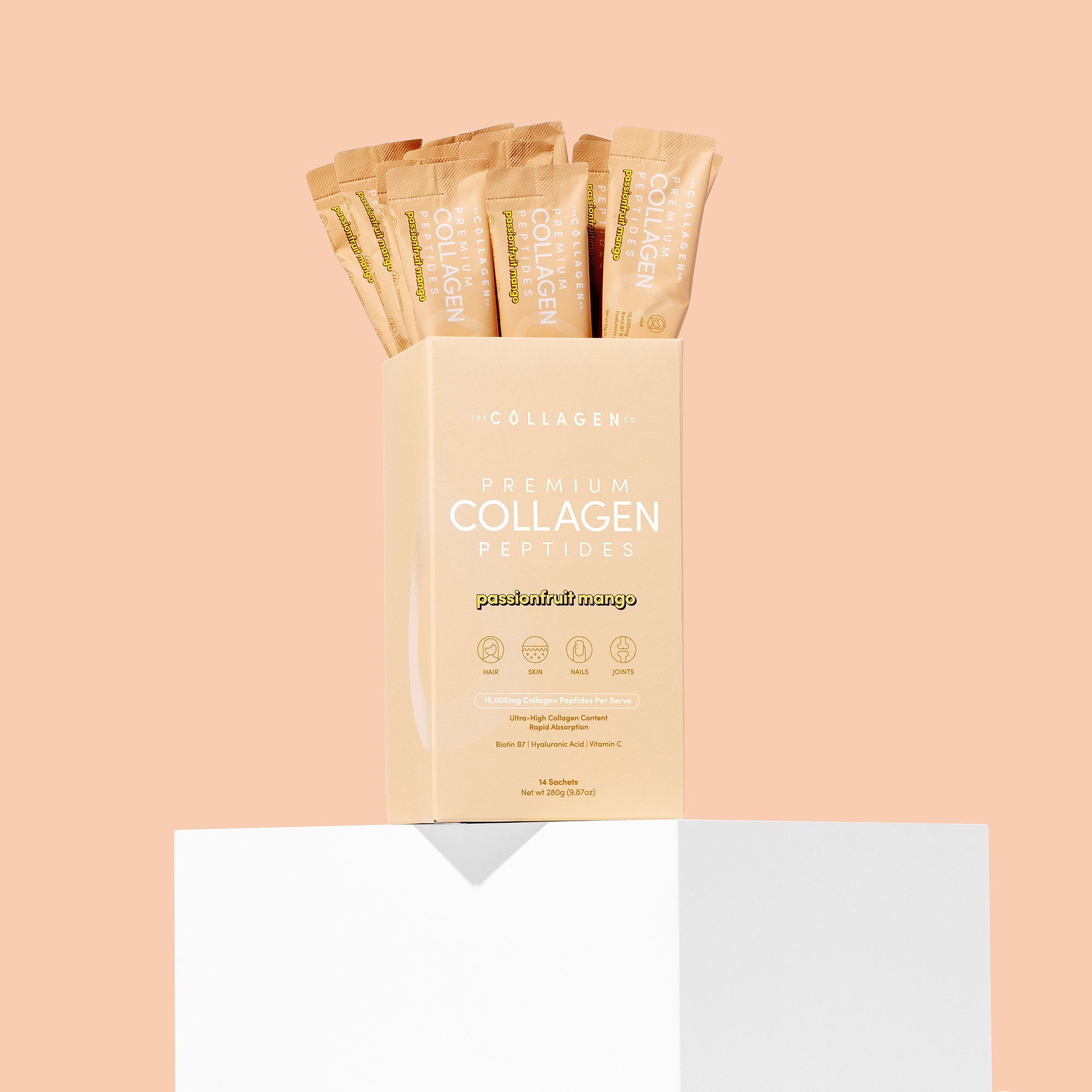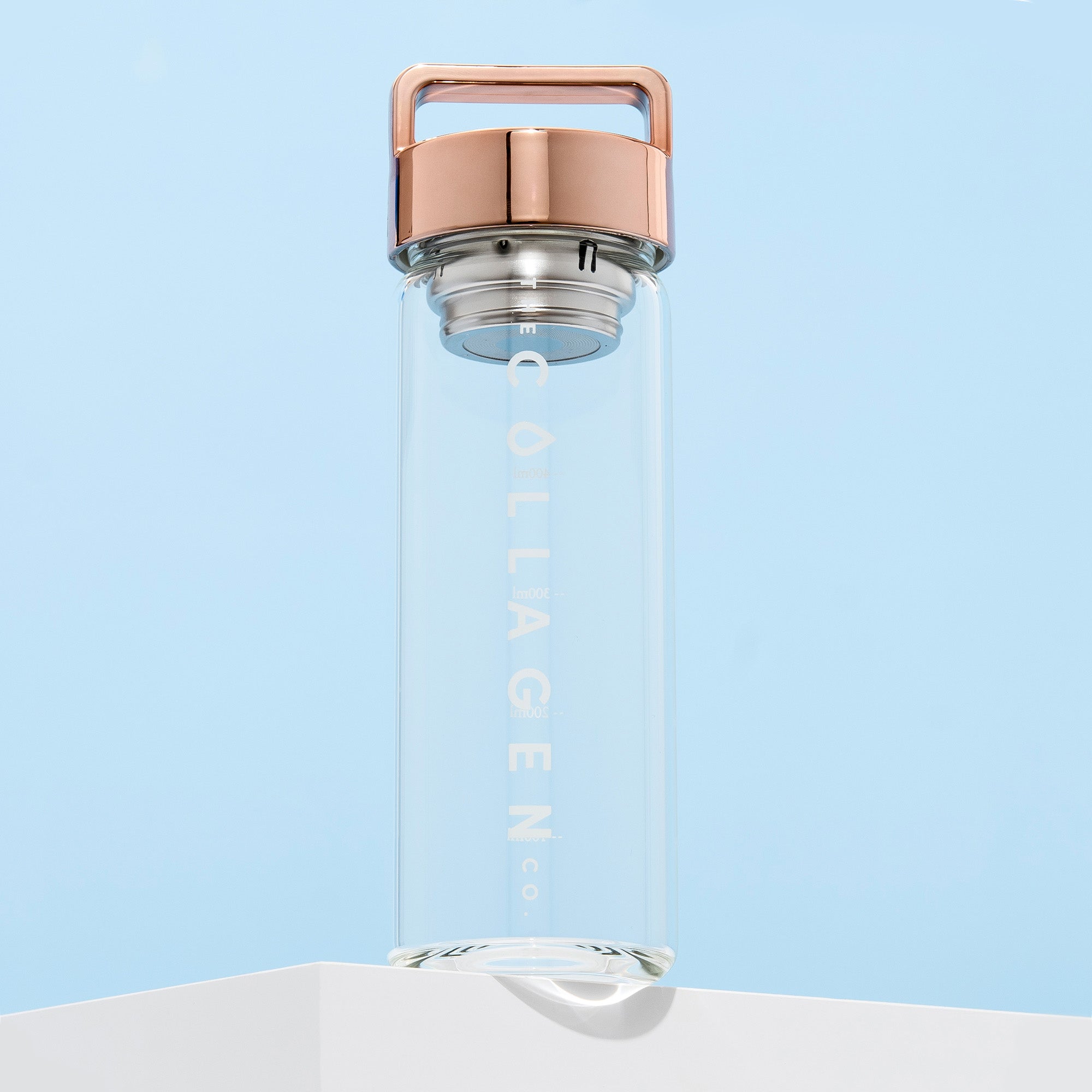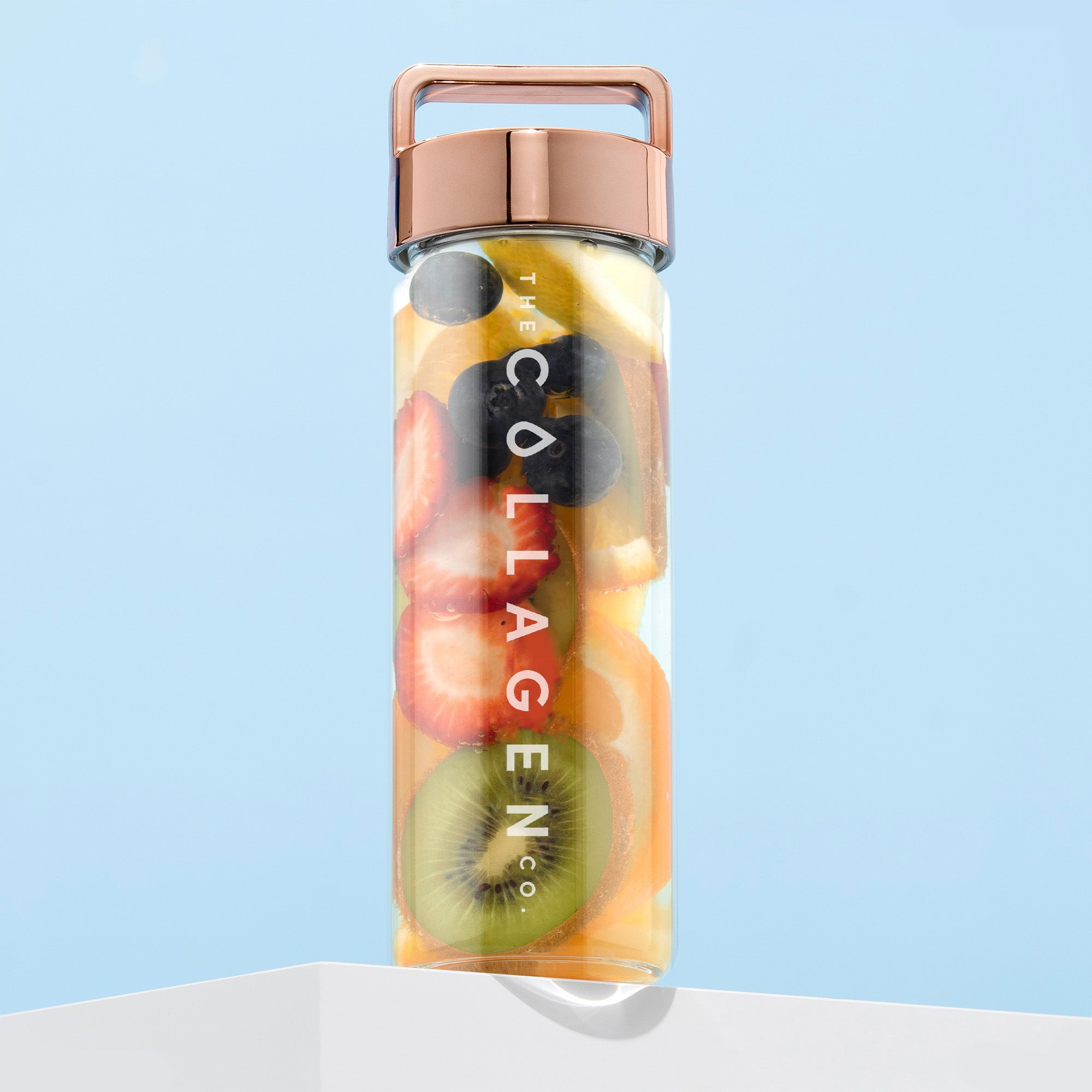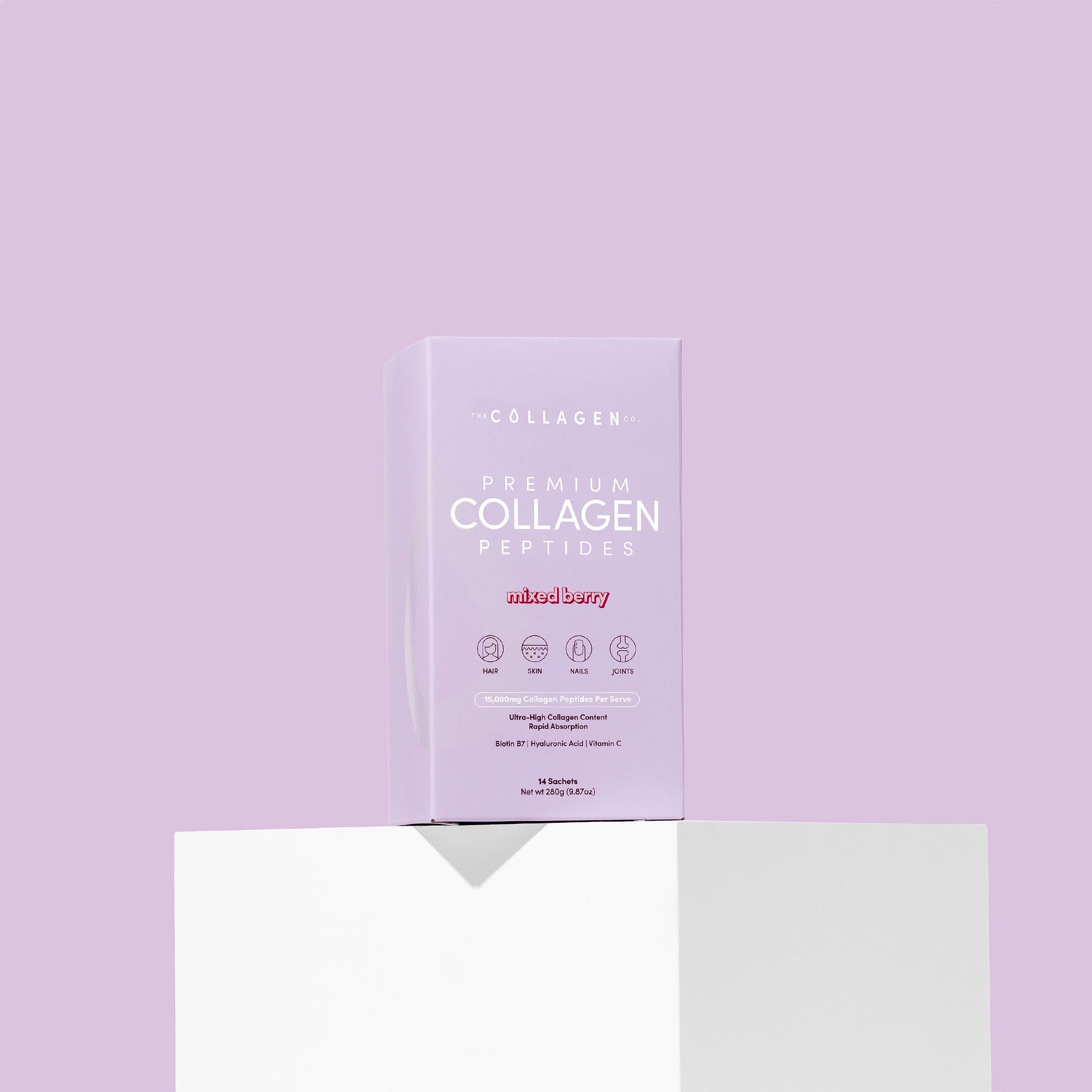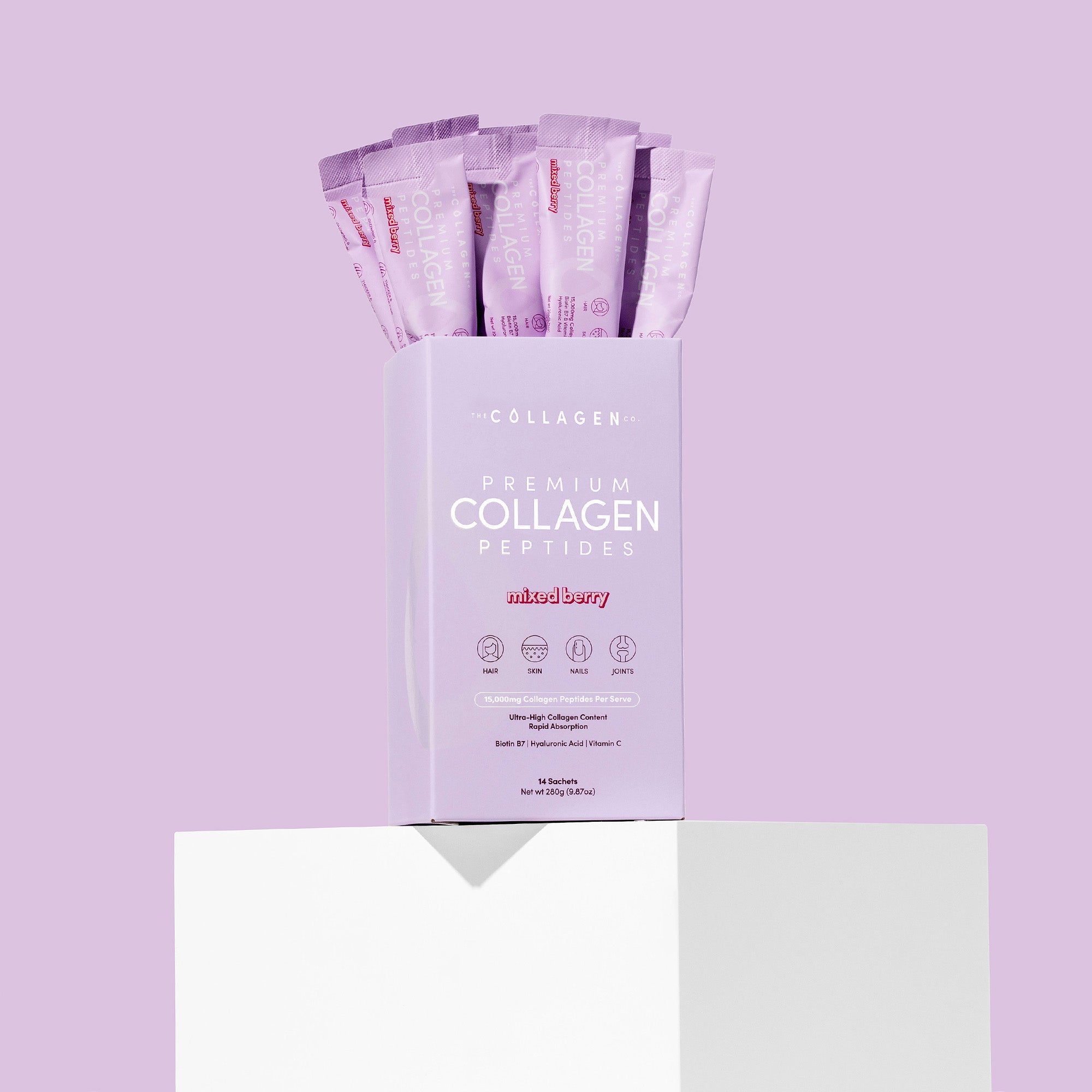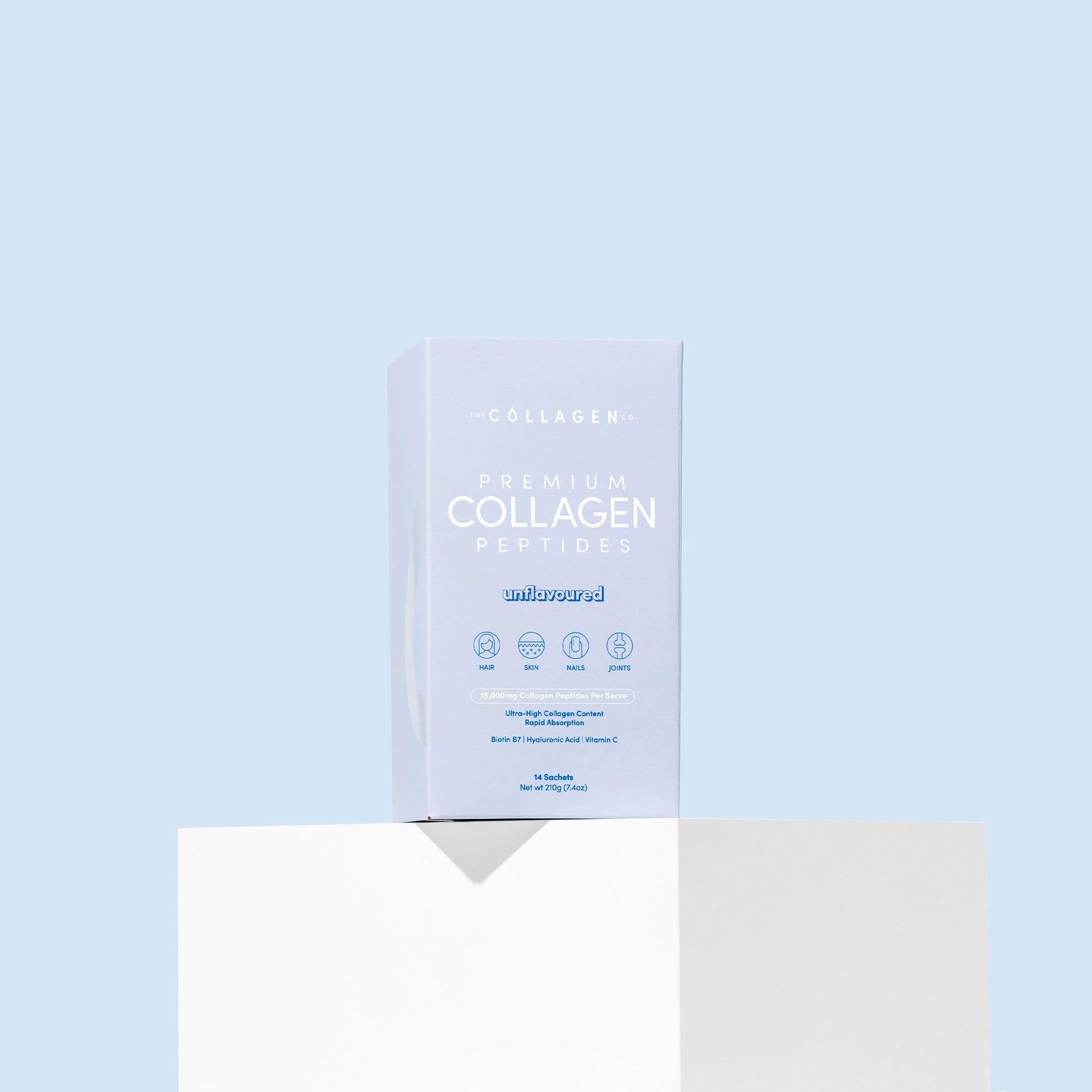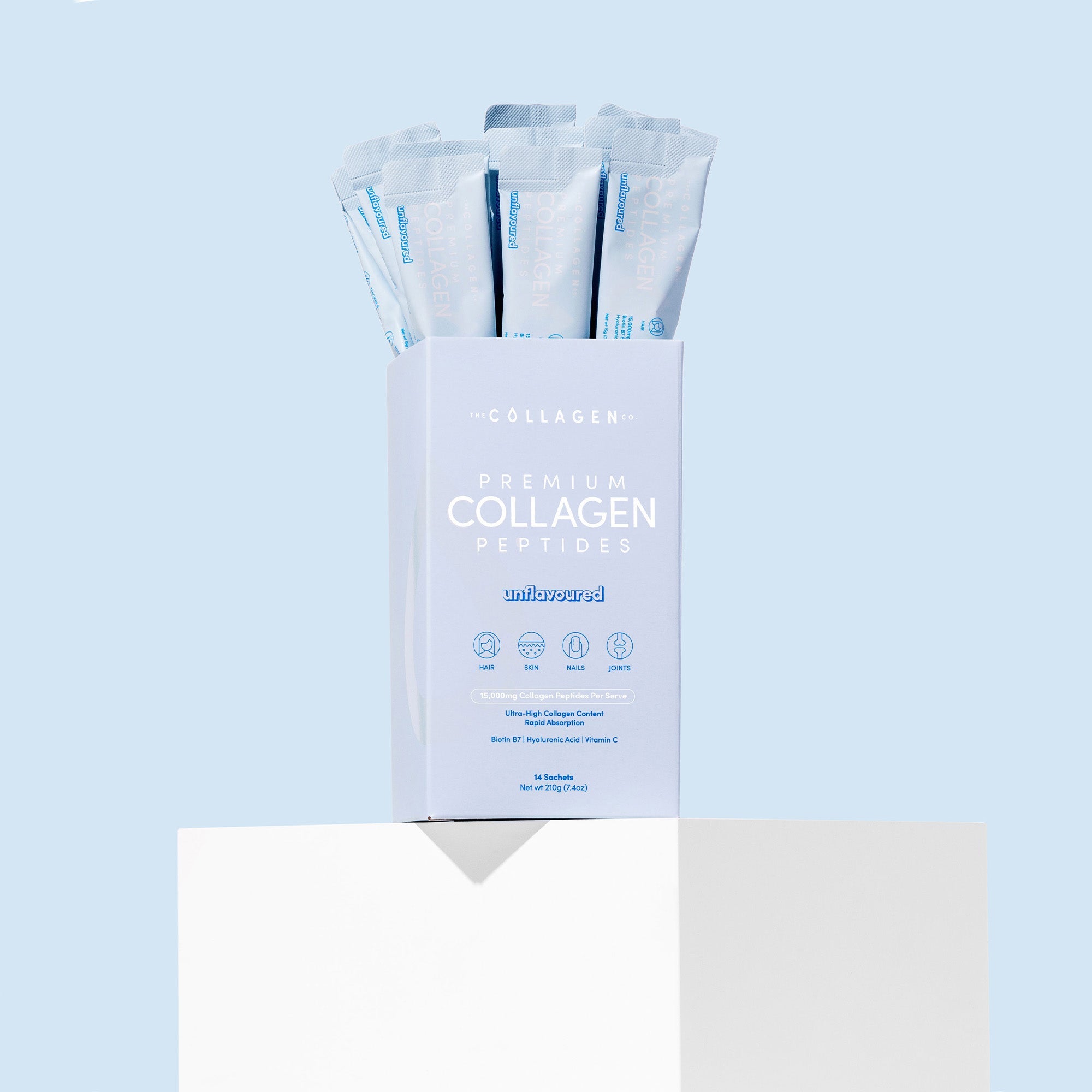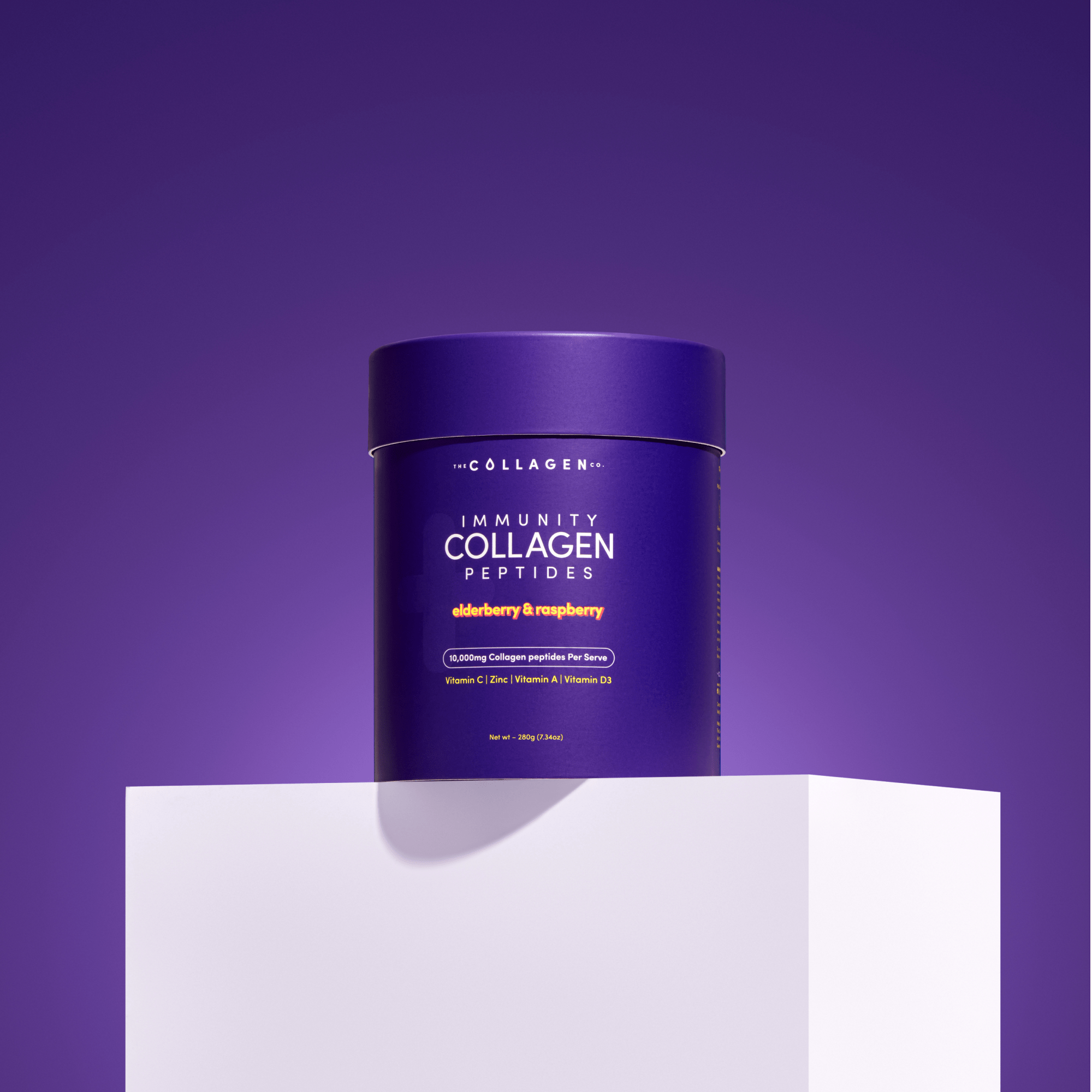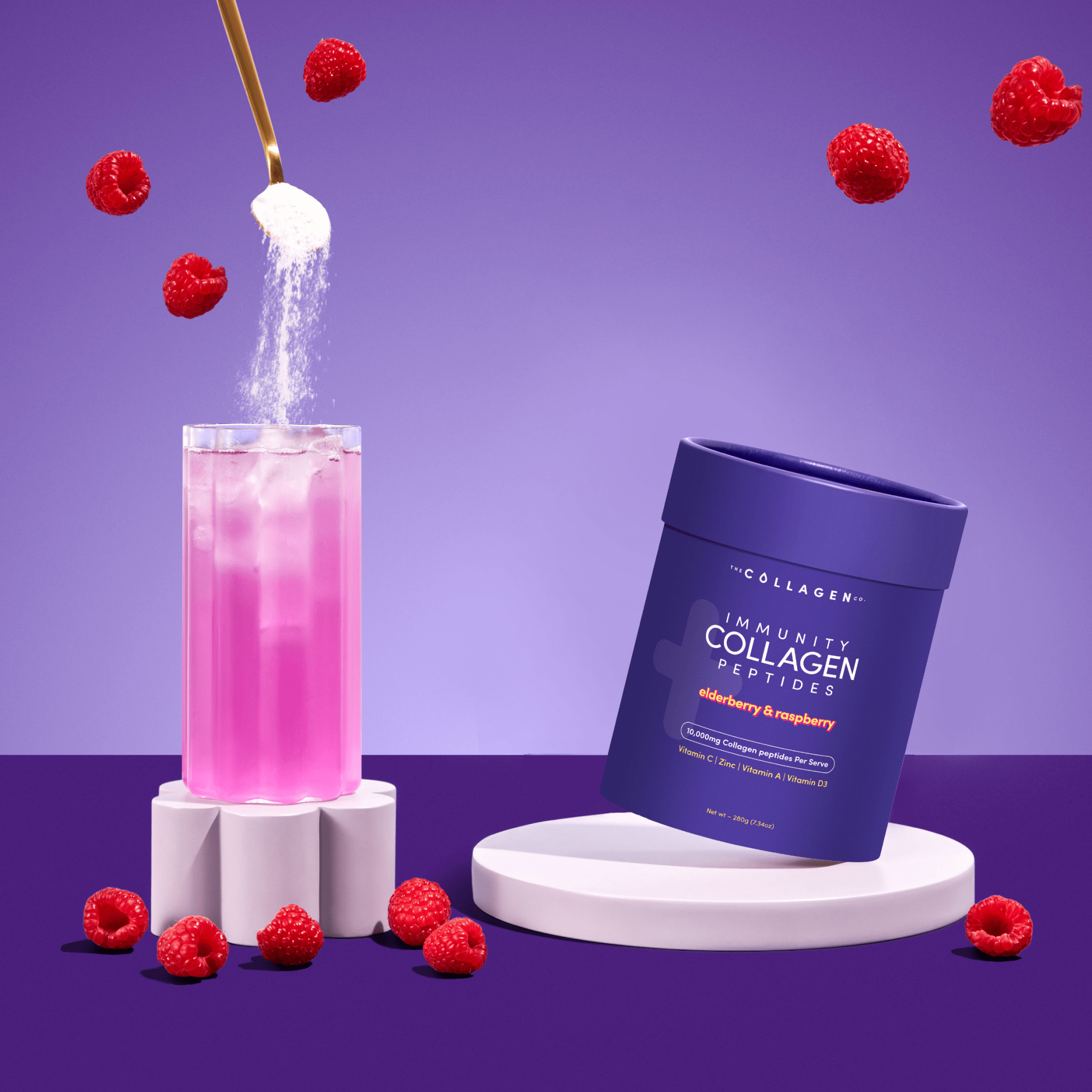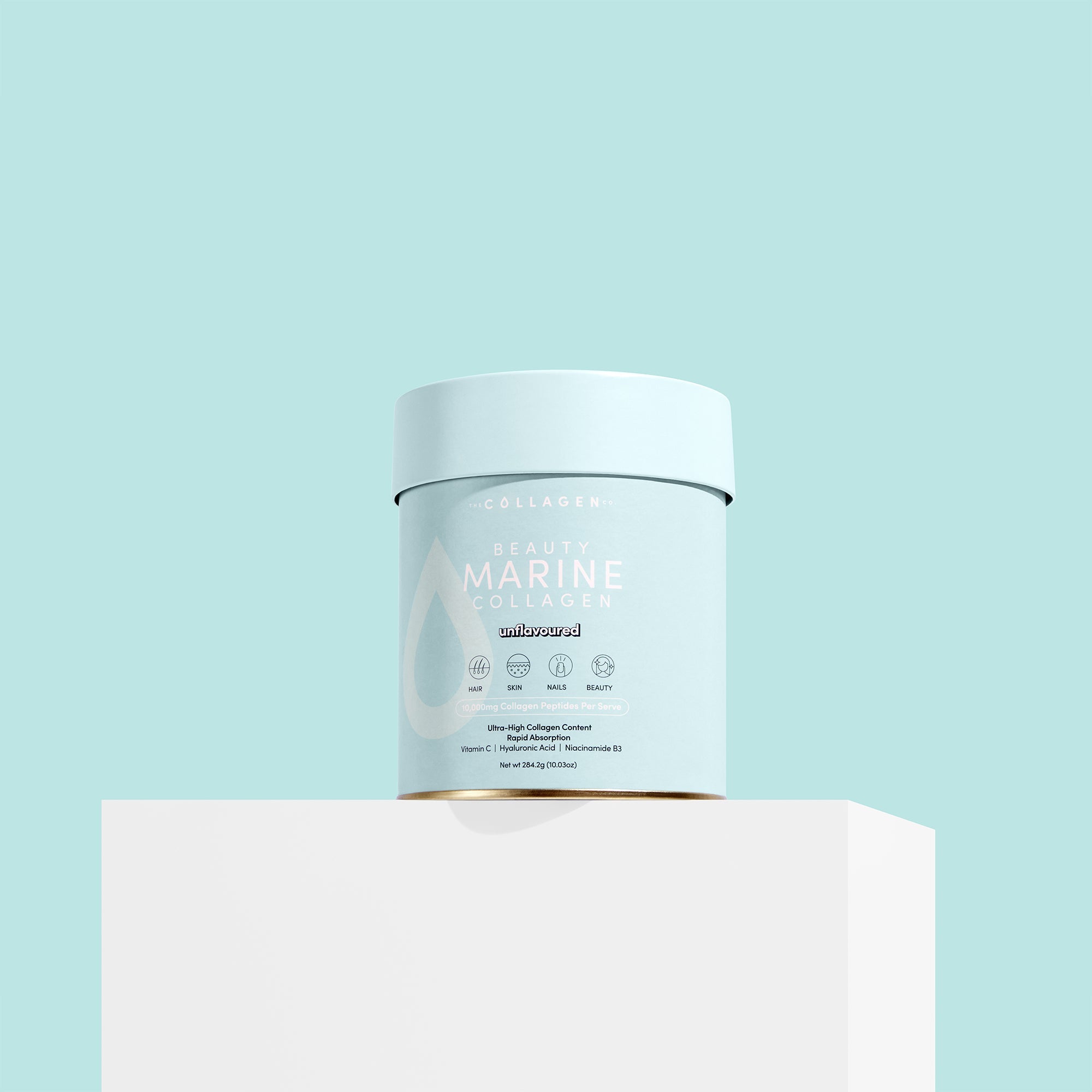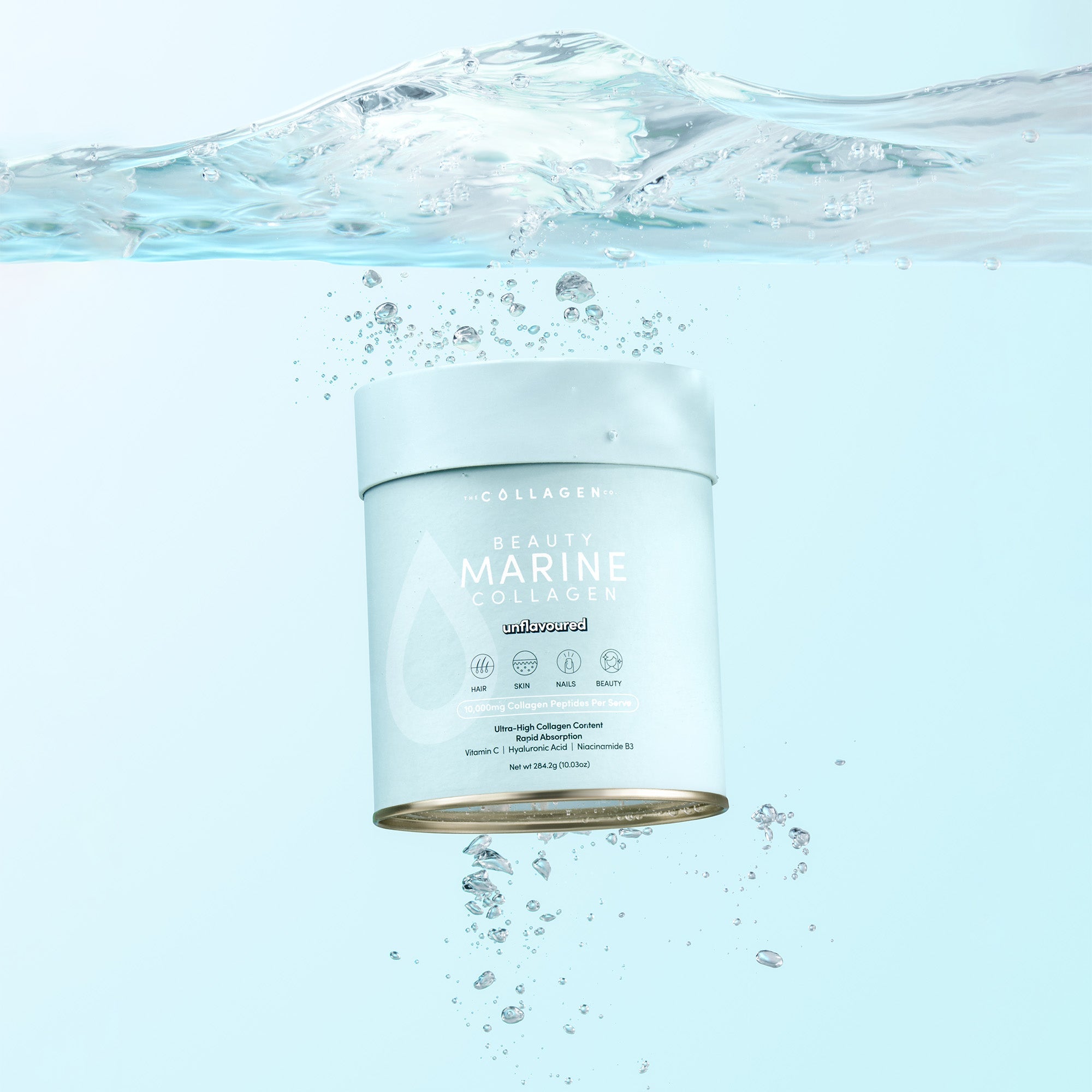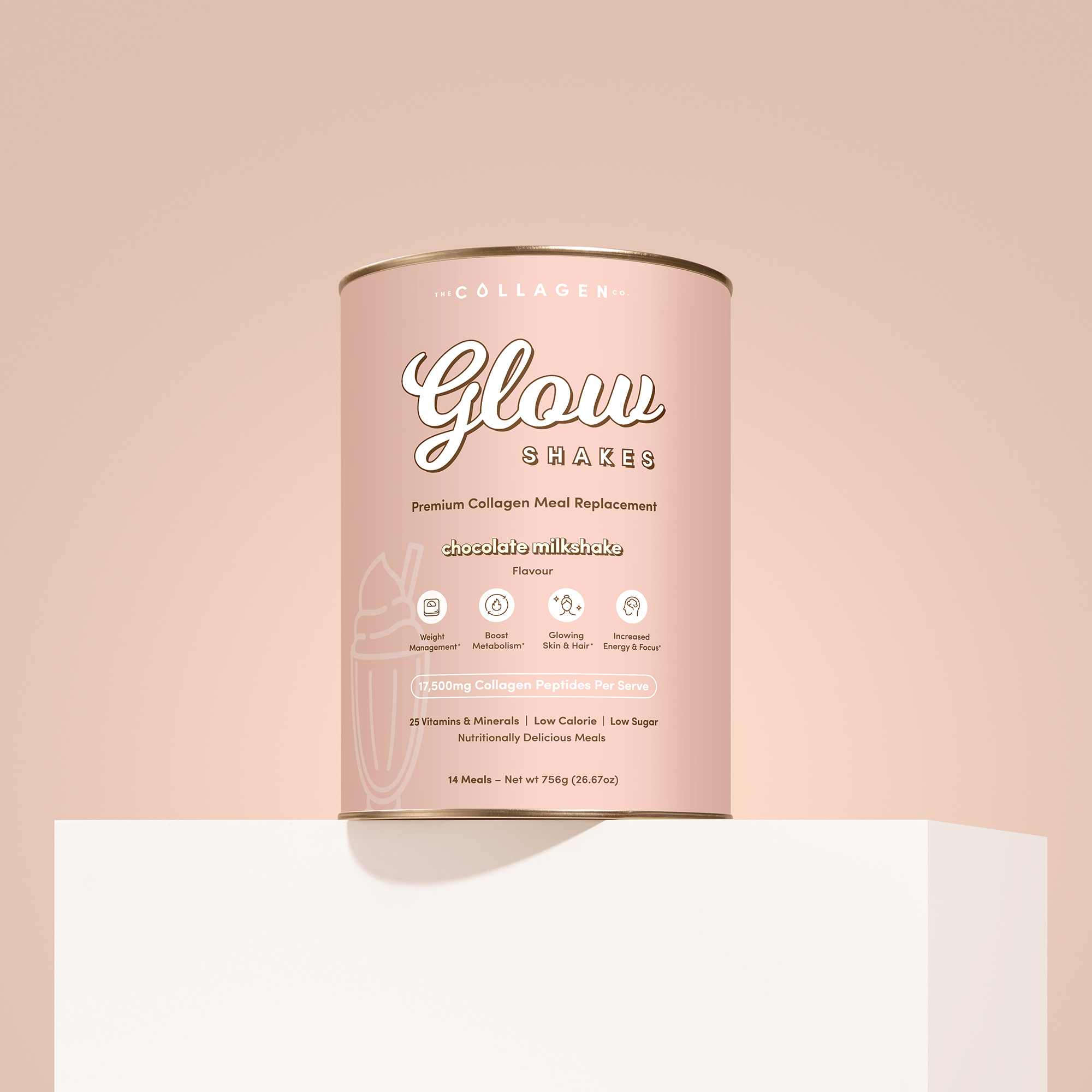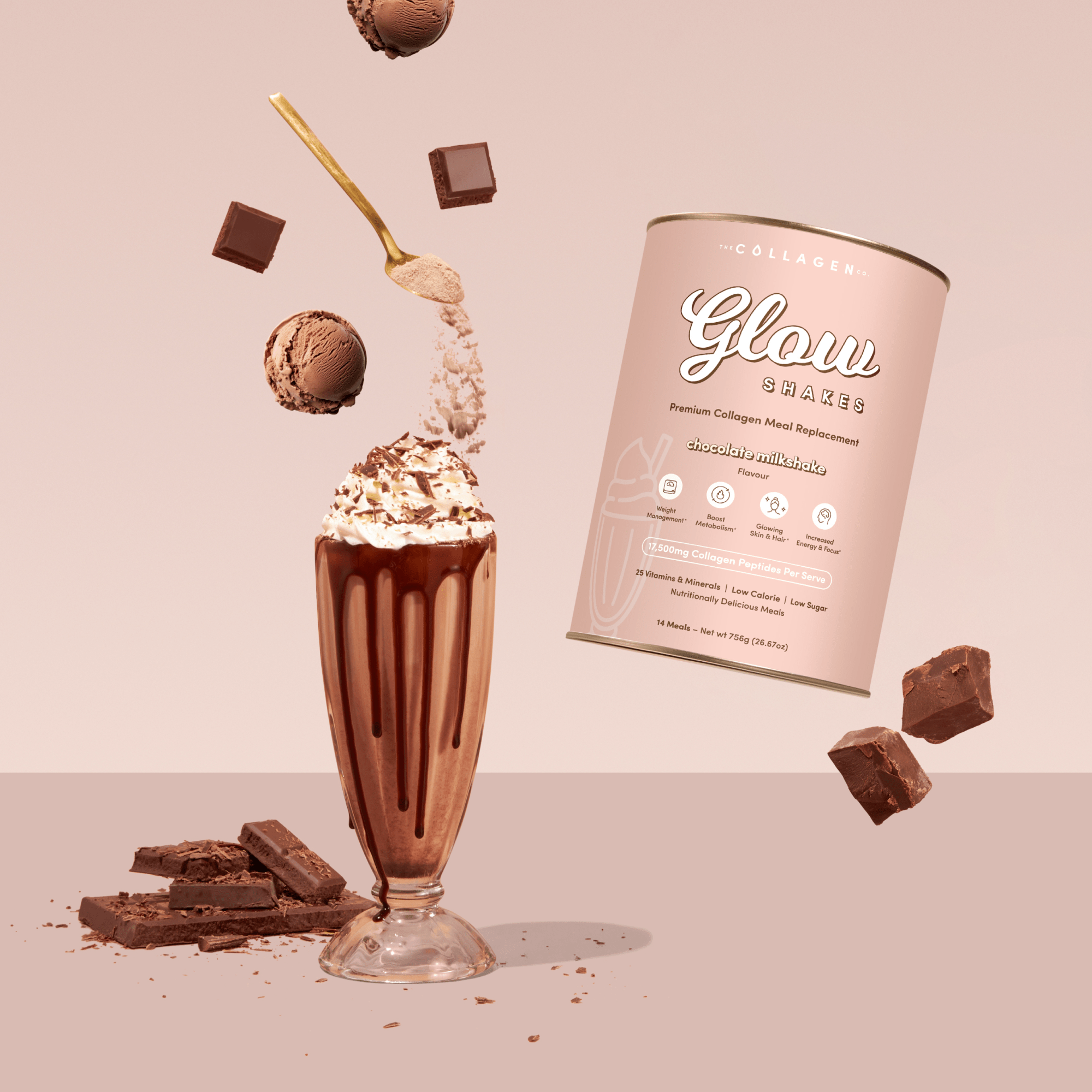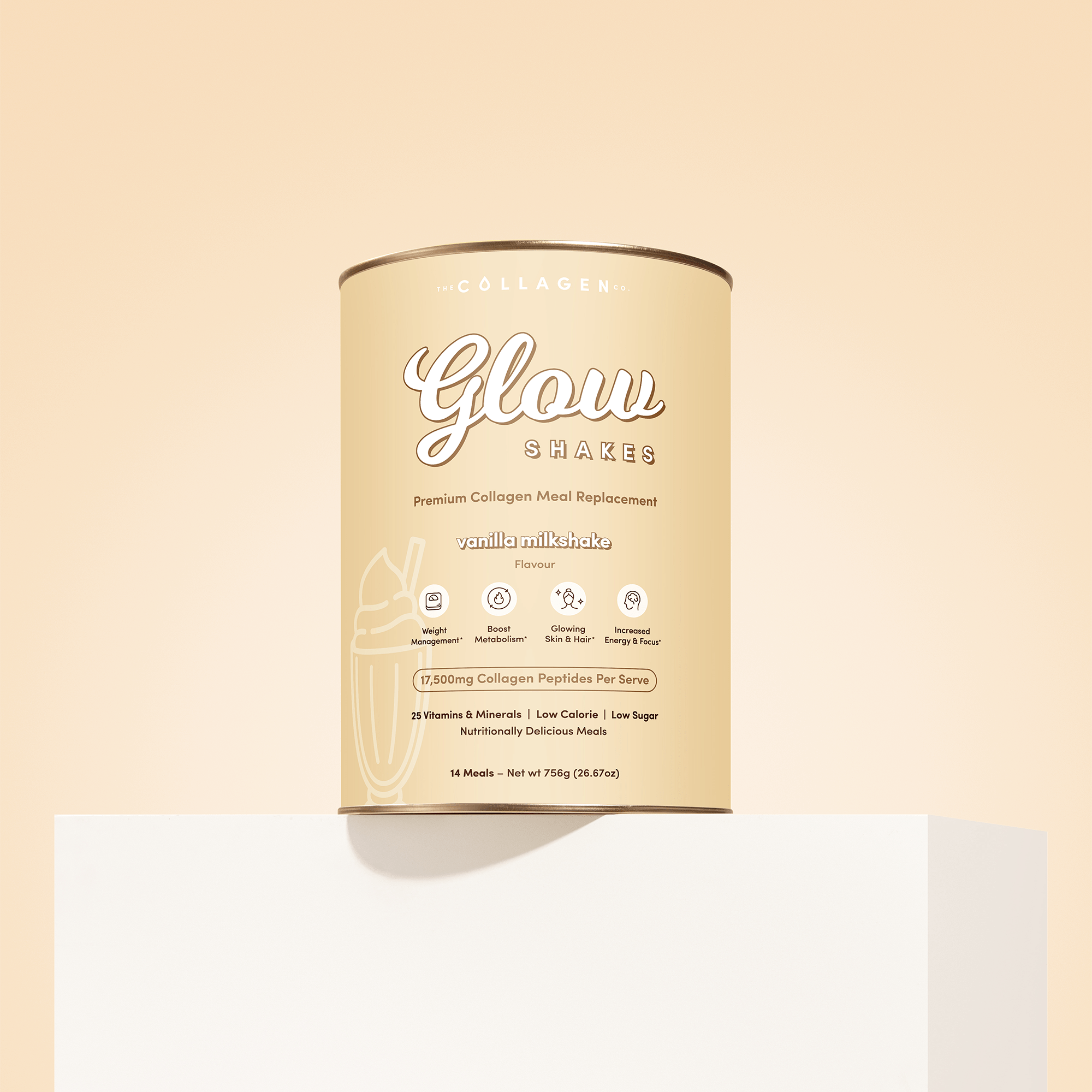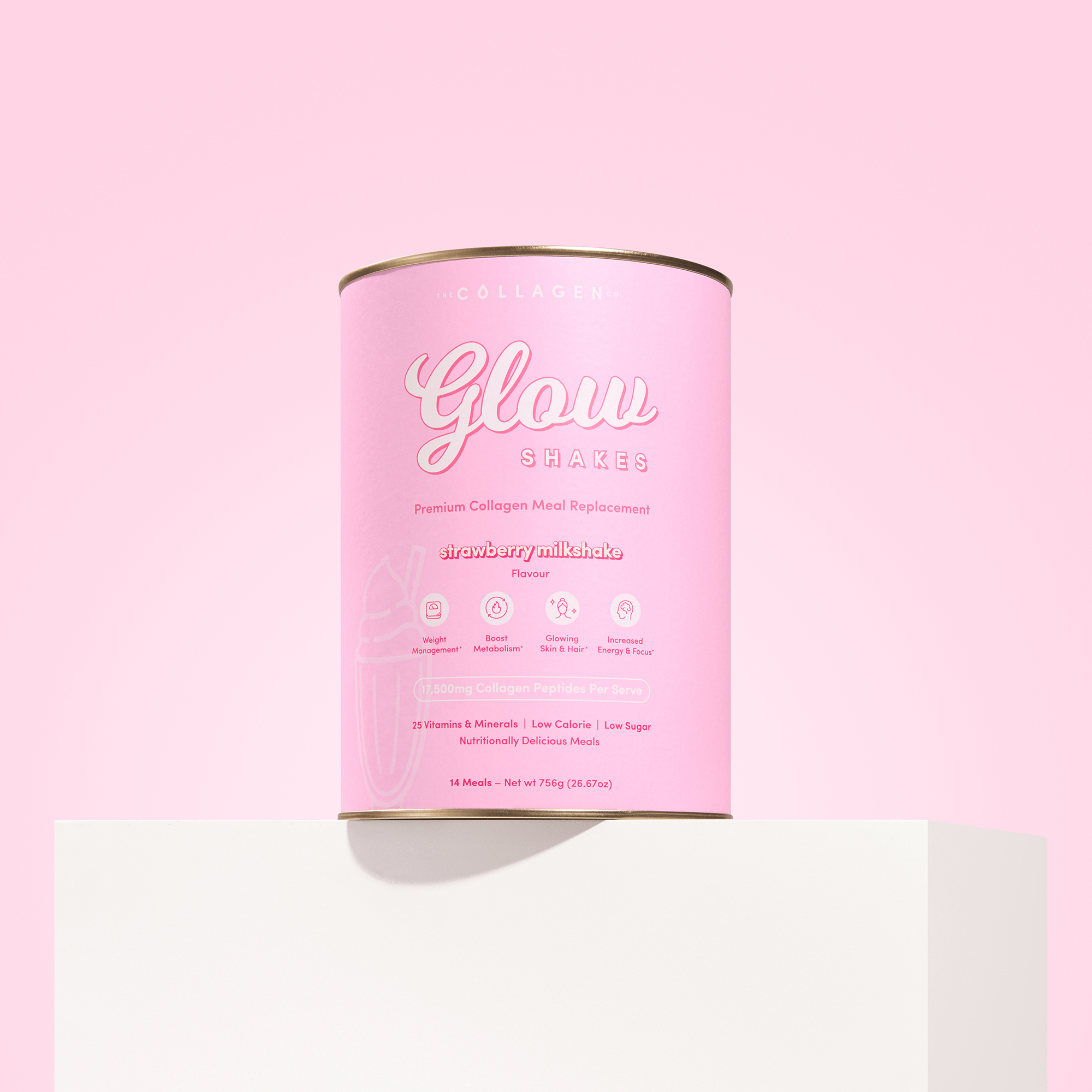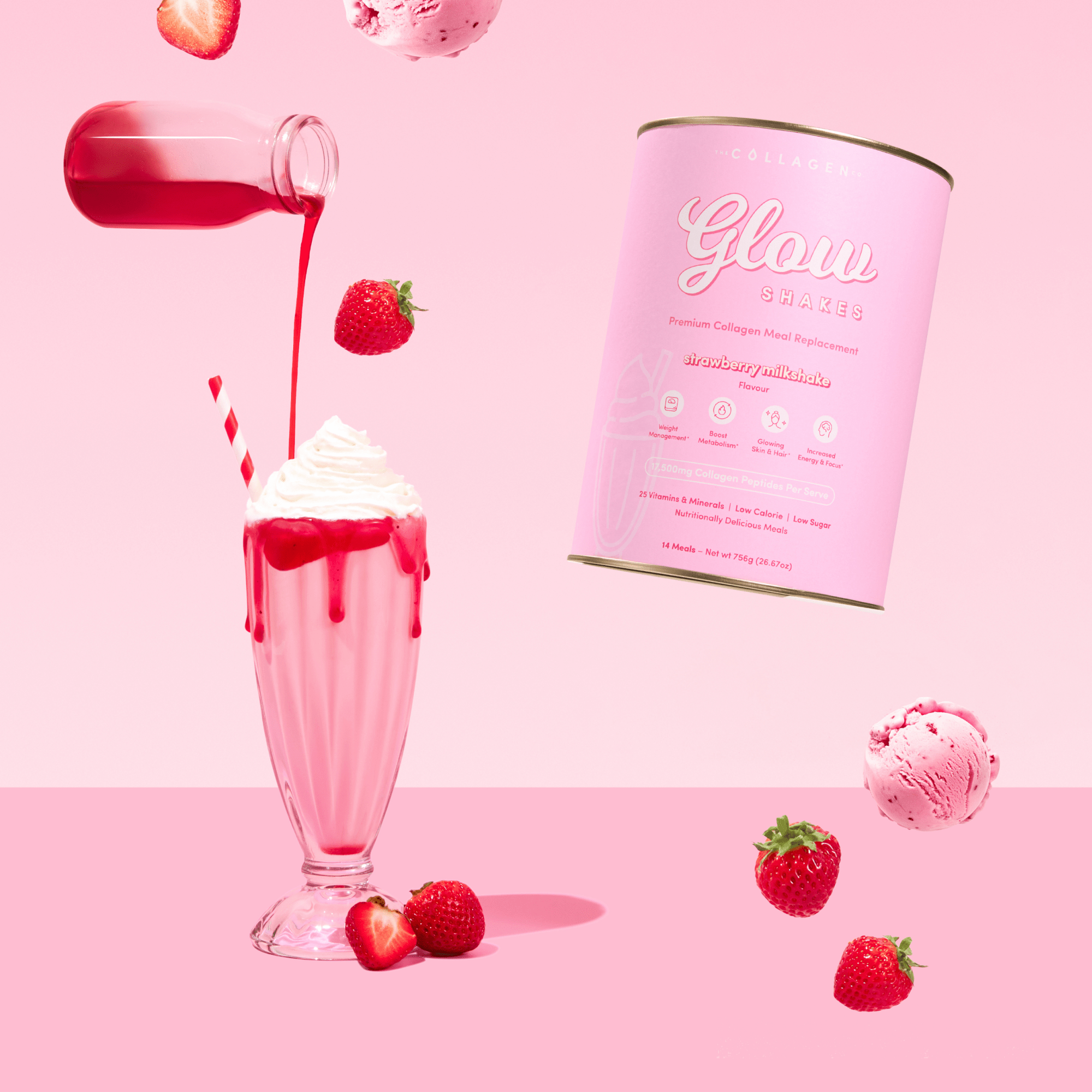Where Does Collagen Come From?
Posted July 2022
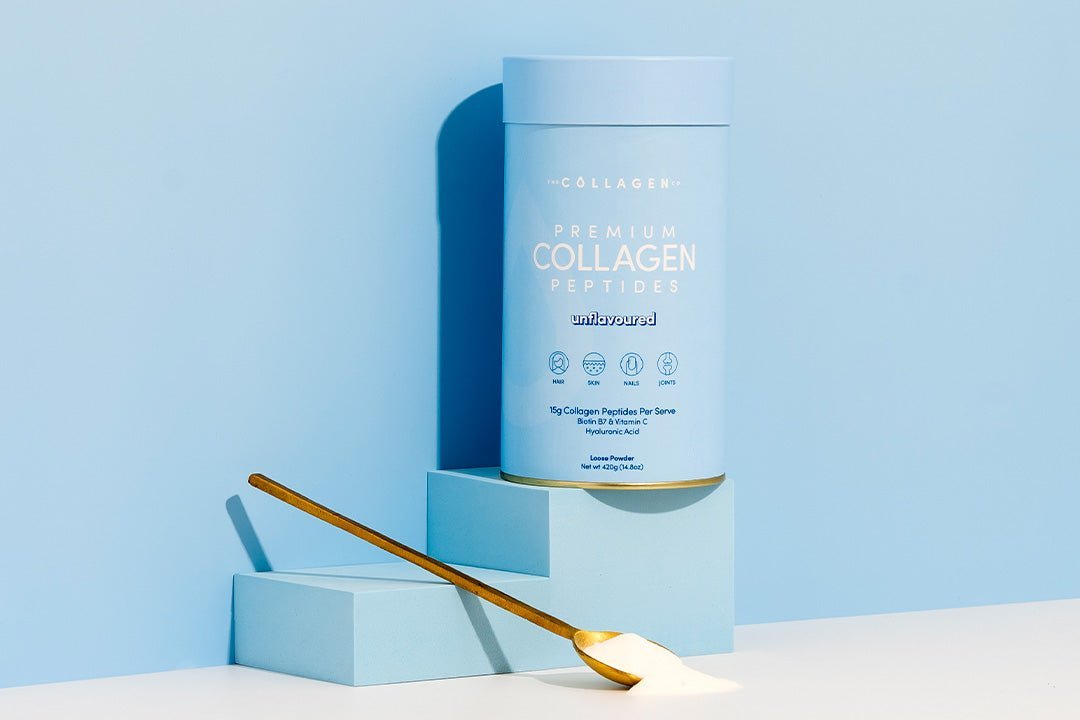
Try answering this question: where do hydrolyzed collagen peptides come from? If your mind is drawing a blank, you’re in for a treat. Continue reading to discover where collagen could come from—and how your supplement’s source may affect its efficacy.
Your body naturally produces collagen
First, let’s put an end to any wild ideas. Your body naturally produces collagen. It’s the most prevalent component of your extracellular matrix, a structural support network for skin, bones, joints, etc.) Don’t worry, though, collagen peptides aren’t sourced from human bodies. And um … that’s all we’ll say on the matter.
Where do collagen supplements come from?
Now, promptly moving on: five animal sources account for the bulk of collagen peptides available in the market:
- Bovine (i.e., cow) collagen: Sourced from cow hides, bones, and muscles. Rich in type I and III collagen.
- Marine (i.e., fish) collagen: Sourced from fish skin and scales. It may also be extracted from invertebrates like jellyfish, sponges, sea urchins, and octopuses. Rich in type I collagen.
- Poultry (i.e., chicken) collagen: Sourced from chicken bones, cartilage, and tissues, Contains type II collagen.
- Porcine (i.e., pig) collagen: Sourced from pig skin. Rich in type I and III collagen.
- Ovine (i.e., sheep) collagen: Sourced from sheepskin, bones, and various by-products, like the gut. Rich in type I and III collagen.
Does the collagen source matter?
Or, in other words, should you pick a particular collagen source over another? Answer: it depends on your …
#1: Dietary restrictions and/or preferences
Keep your unique food preferences, allergies, plus religious and ethical beliefs in mind.
If you don’t eat pork (for whatever reasons), give porcine collagen a miss—the good news is that you still have plenty of alternatives to choose from.
A note on ethical considerations: it's worth bearing in mind that no collagen source's always more ethical than another. This depends entirely on a company’s manufacturing process. In general, though, the following could give you a good idea of a supplement’s ethicality:
- How were the animals raised? Was it sustainably and humanely (e.g., free-range and pasture-raised)?
- Is the company transparent and upfront about its manufacturing process? Ideally, the company you purchase your hydrolyzed collagen supplement from should share information on where and how they source their collagen peptides (e.g., on their website’s ‘FAQ’ or ‘About Us’ pages). Can’t find any relevant information anywhere? That’s a red flag.
Budget
Do a quick search for chicken and ovine collagen. How many products do you see? Chances are, not many. That’s because they’re rare. Instead, you will encounter many collagen supplements from bovine, marine, and porcine sources.
And that means chicken and ovine collagen will typically be more expensive on a per 100 grams basis than other collagen sources.
That said, this may change in the future when more companies include chicken and ovine collagen peptides in their product offerings. Why? We can look toward the law of supply and demand, a fundamental economic principle. When there is an increase in supply for goods and services while demand remains the same, prices tend to fall to a lower equilibrium price.
Meaning? Although supplementing with chicken or ovine collagen peptides may not make financial sense currently, you don't necessarily have to discount purchasing them forever.
That’s a huge, huge difference.
Preferred collagen supplementation “profile”
About 90% of your collagen is one of three types: I, II, and III. Each collagen protein type differs in biological function.
Type I provides structure to skin, bones, tendons, ligaments, and other connective tissues. Type II supports joint health. Type III, on the other hand, performs similar functions to type I—but with the added “bonus” of promoting skin health and elasticity.
While no collagen sources provide all three collagen protein types, research shows that select bovine collagen may stimulate the body's natural production of type II collagen despite containing only types I and III.
Thus, if you’re searching for an “all-rounded” collagen powder, one sourced from bovine is likely your best pick. It’s also worth noting that the bulk of commonly cited research on collagen supplementation centers around bovine-derived peptides.
Takeaway
All collagen sources are animal-based (that’s right: vegan collagen supplements don’t currently exist). And amongst the five animal sources—bovine, marine, porcine, ovine, and poultry—there isn’t necessarily one that’s superior to or more effective than all others.
While select bovine collagen protein (like The Collagen Co’s premium peptides) could stimulate your body’s production of all three collagen protein types, your choice of collagen source will still depend on individual factors, like your dietary restrictions, beliefs, and budget.
That’s right: vegan collagen supplements don’t currently exist)

